
Compassionate Care Outreach
Our Proposal
Bible Ministries International, (BMI) recognizes that health is a fundamental, yet often overlooked, factor in addressing the homelessness crisis. While housing is crucial, simply creating places for people to sleep does not address the root problem of poor health that often perpetuates homelessness. Our approach centers on coordinating pro-bono specialty healthcare from volunteer private practitioners, in Los Angeles and San Diego for individuals experiencing homelessness. By focusing on health, we aim to create transformative change that opens new possibilities for the future.
Scope of Need
On a single night in January 2023, volunteers counted over 60,000 homeless people seeking shelter across Los Angeles County during the annual Point in Time census. These numbers represent a crisis of immense proportions, with thousands facing nights of exposure without reliable refuge from violence, untreated illnesses, and the demons of mental anguish. The health challenges faced by this population are numerous and severe, including chronic physical conditions, acute medical needs, mental health disorders, substance use issues, and numerous other health concerns exacerbated by their living conditions.
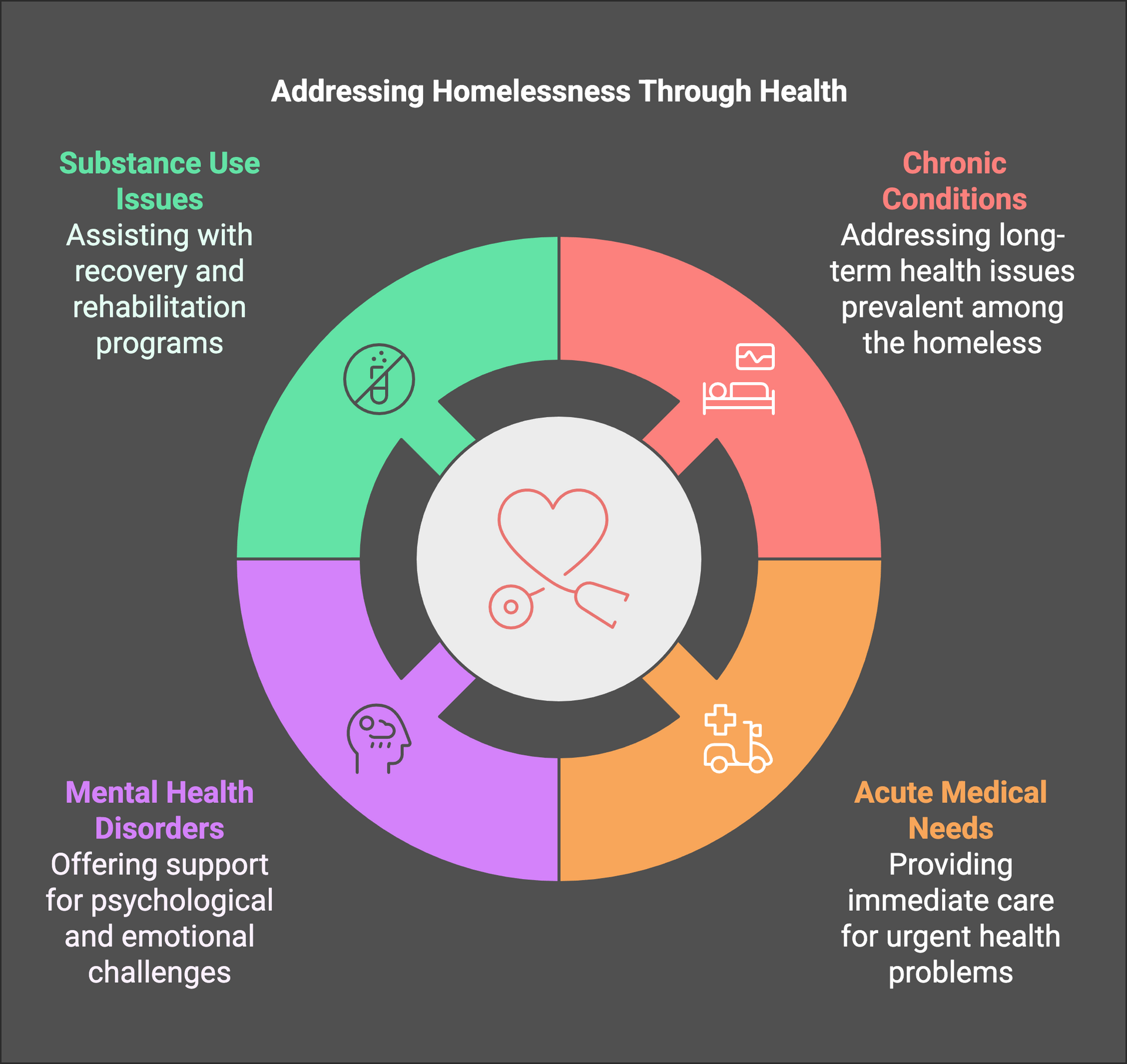
Building a Foundation of Service
As California continues seeking solutions to its homelessness crisis, public health infrastructure strains under excessive demand from underserved groups lacking alternative access points. Emergency room visits have sharply risen for manageable conditions or preventable escalations when ongoing care falls out of reach. Meanwhile, many licensed practitioners have excess capacity and a calling for community service if only connectivity and liability considerations were addressed.
While debates persist around root societal causes, BMI refuses idleness over inaction and urgently seeks avenues for compassion that reach populations where they are. We believe healing starts by building trust through medicine not mandated by badges nor courts nor psychiatry ward confines, but rather care grounded in understanding each patient as fellow community members deserving dignity. This manifests through voluntary physical therapy, optometry screenings, palliative resources, and counseling unbound by backlogged complex care systems but facilitated through the goodwill of practitioners with willingness if liability barriers are eliminated. Our inception realigns focus on the personal not political.
BMI proposes acting as a conduit between good Samaritan clinicians across specialties and residents at shelters unable to navigate disparate health systems alone. Volunteers will provide triage, diagnostics, chronic disease management, wound care, infection testing, counseling, dental services, and other interventions during clinics at local shelters or through referrals to their practices if transport is assured. Some may only donate a few hours per month based on bandwidth. However, through expansive outreach across medical associations, health systems, and clinics, we aim to involve hundreds of volunteers to avoid overburdening individuals. Those served will include the medically fragile, mentally ill, and neurodiverse groups most likely to languish on the streets or cycle between ER and shelter without stable recovery plans.
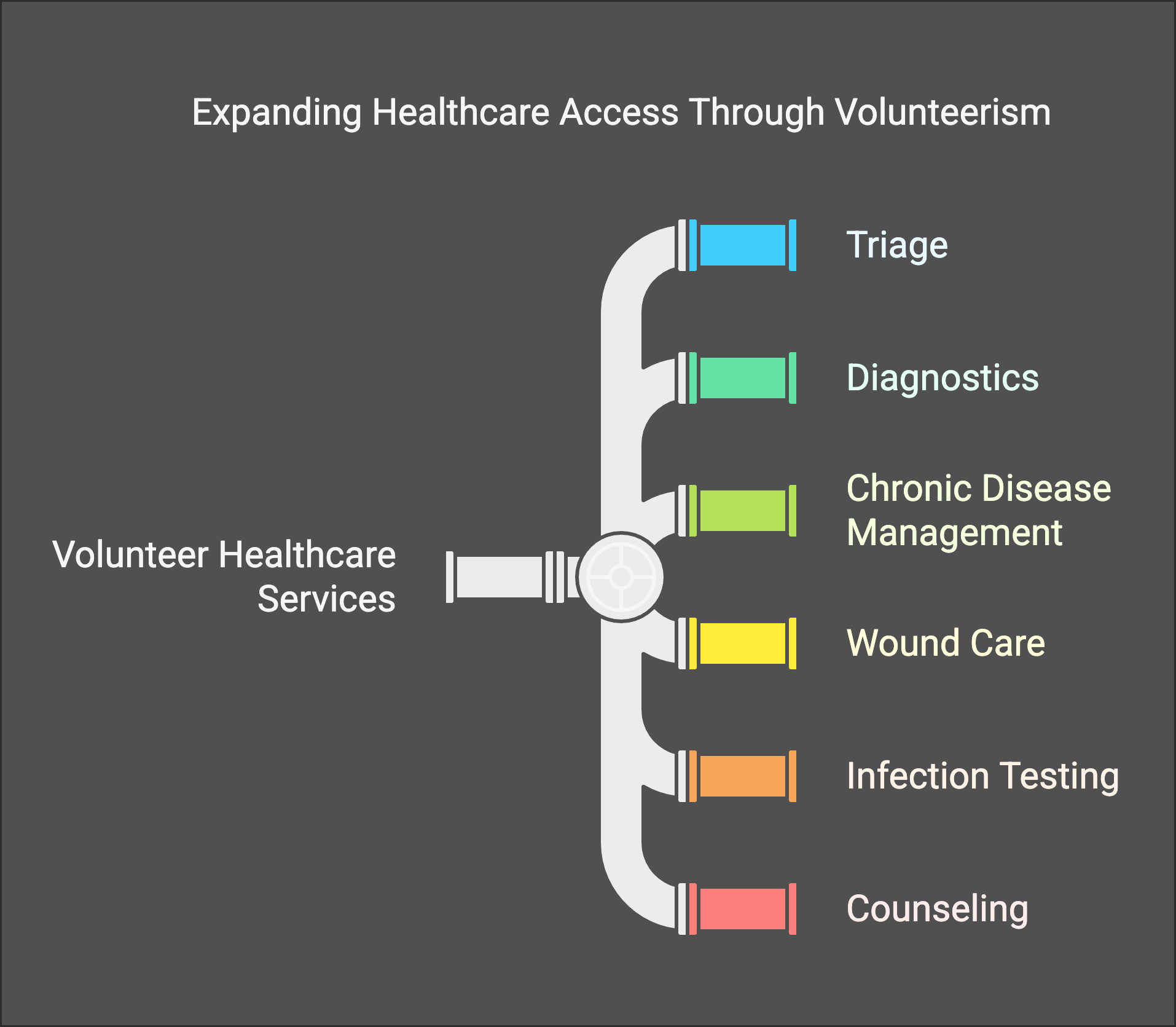
Approach
The Compassionate Care Outreach Program takes a unique approach to addressing these challenges:
Focus on Specialty Care:
We connect homeless individuals with volunteer specialists in orthopedics, dermatology, podiatry, dentistry, ophthalmology, endocrinology, psychiatry, physical therapy, chiropractic care, and nutrition counseling.
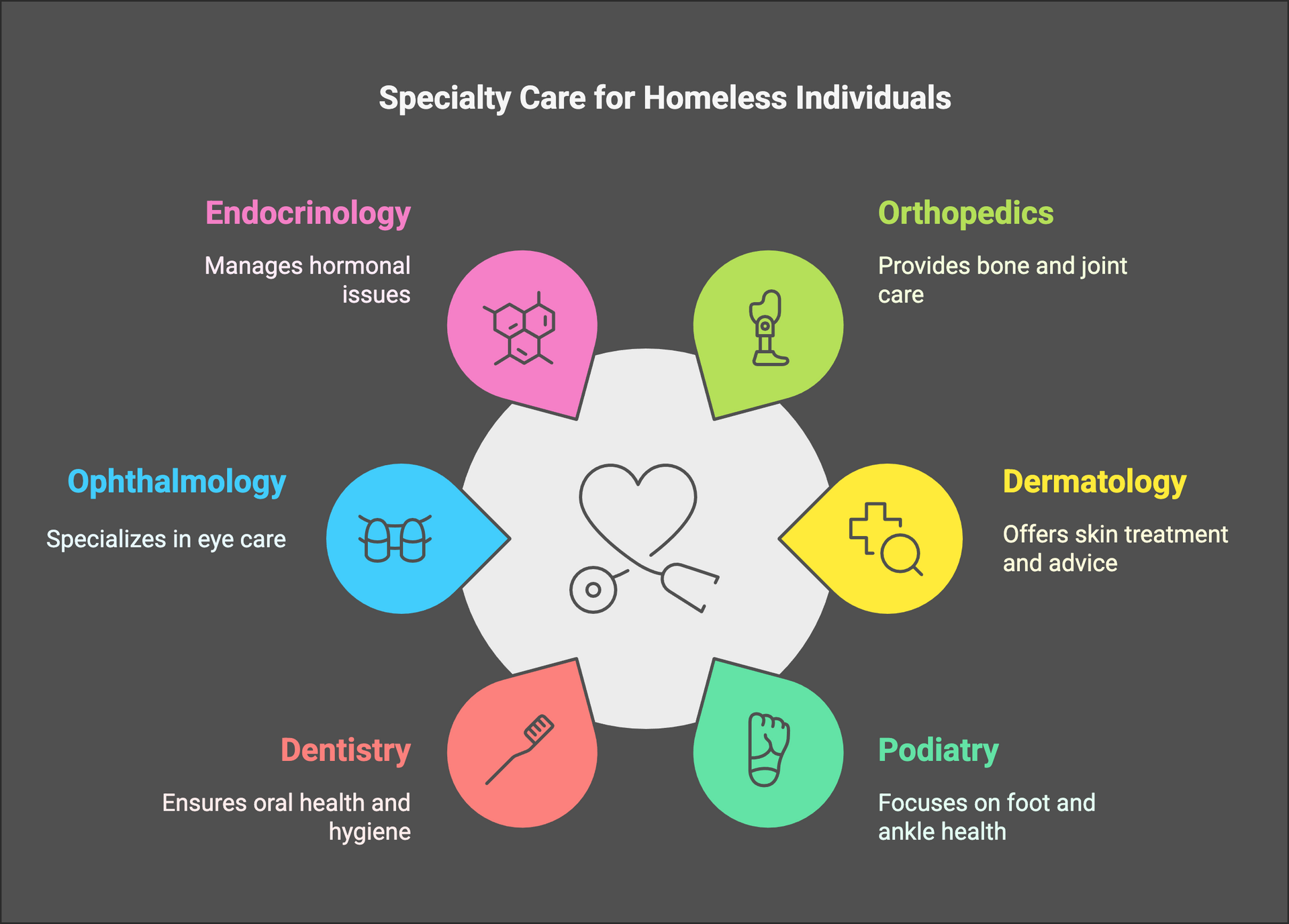
Leveraging Private Practitioners:
We tap into the underutilized resource of private practitioners willing to donate their services.
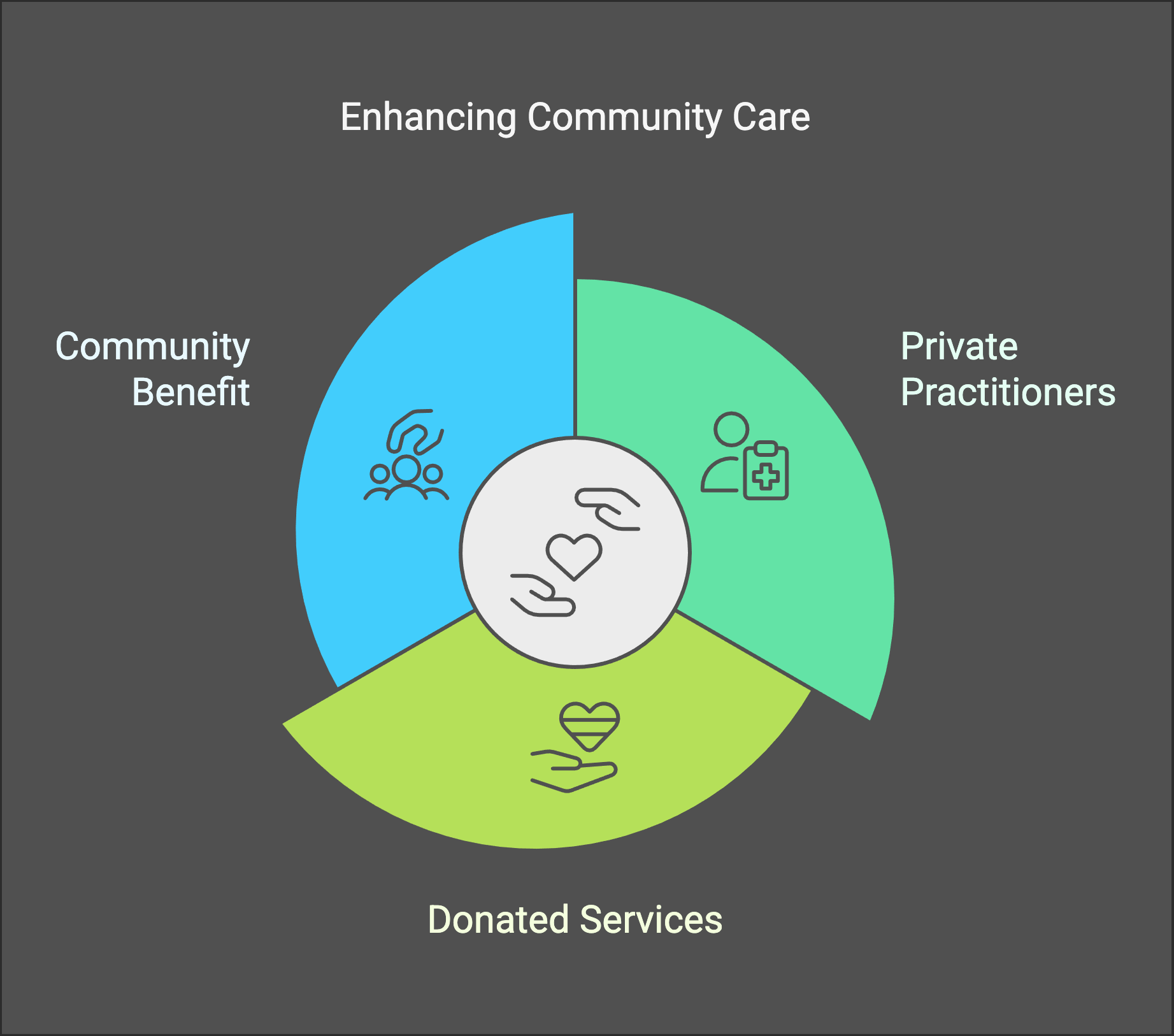
Comprehensive Care Coordination:
We actively manage appointments, transportation, and follow-up care.
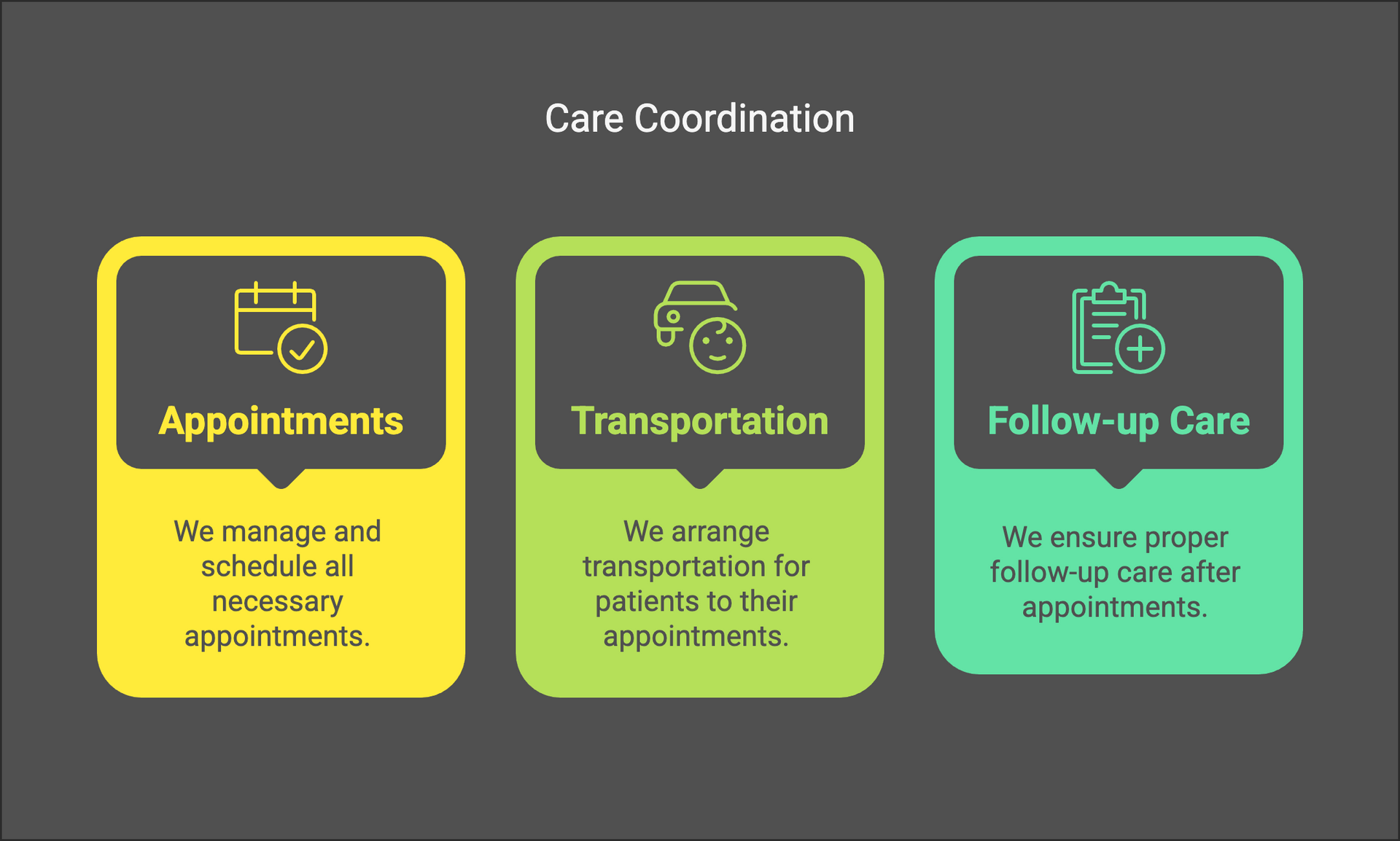
Dignity-Centered Approach:
We prioritize treating each individual with respect, recognizing their humanity beyond their housing status.
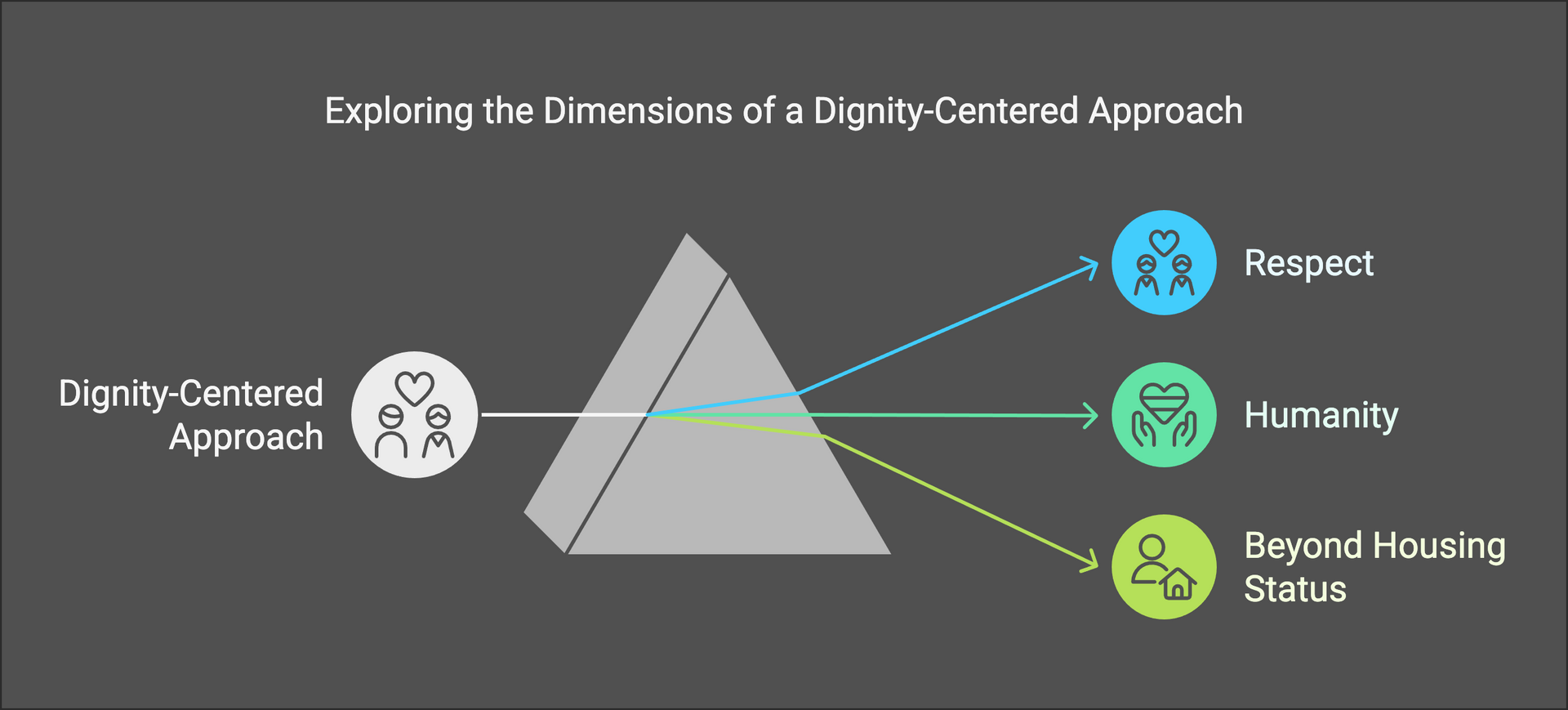
First Step:
Central to our approach is the recruitment of an Advisory Council: We are actively seeking healthcare providers, administrators, and policy experts to form an Advisory Council.
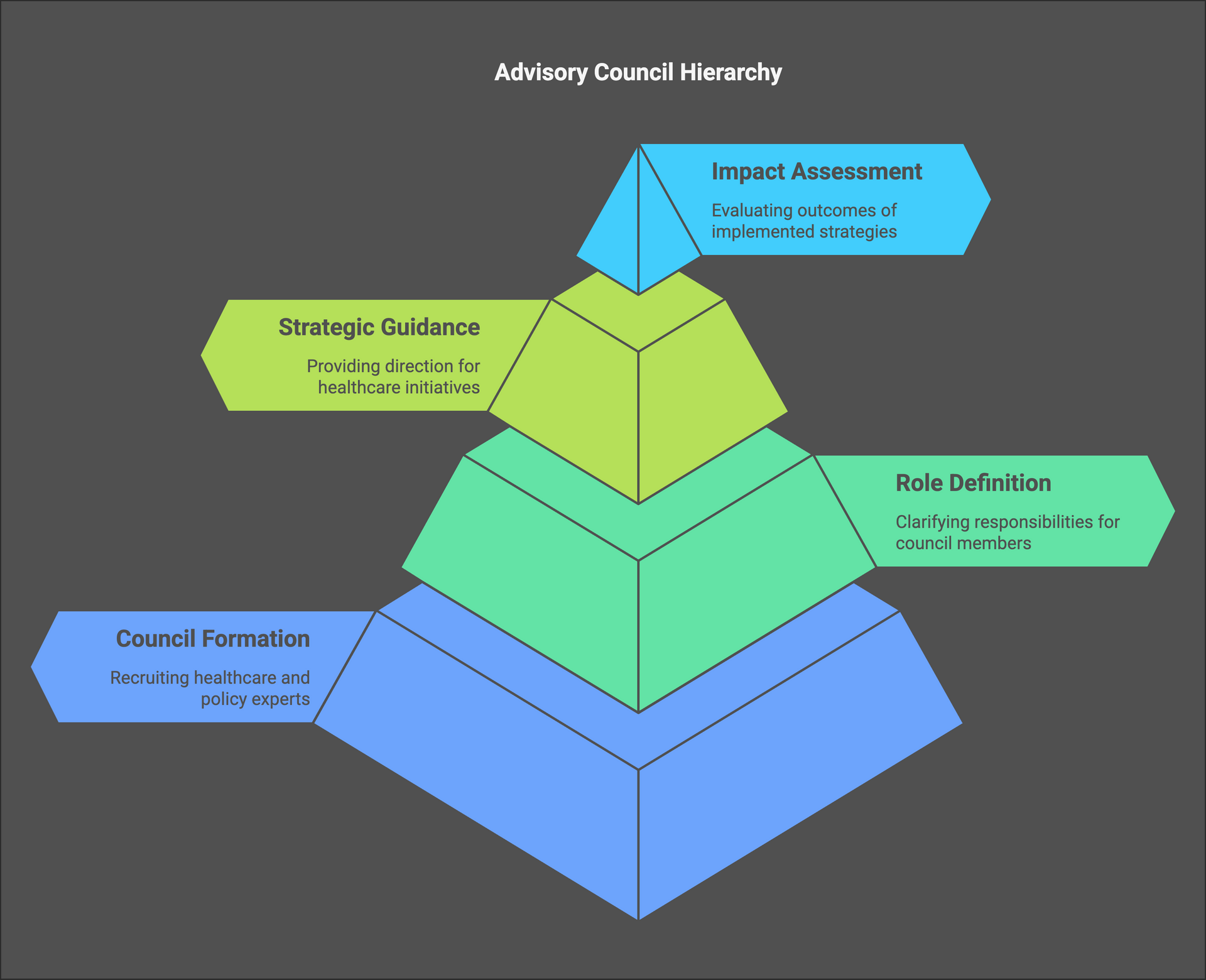
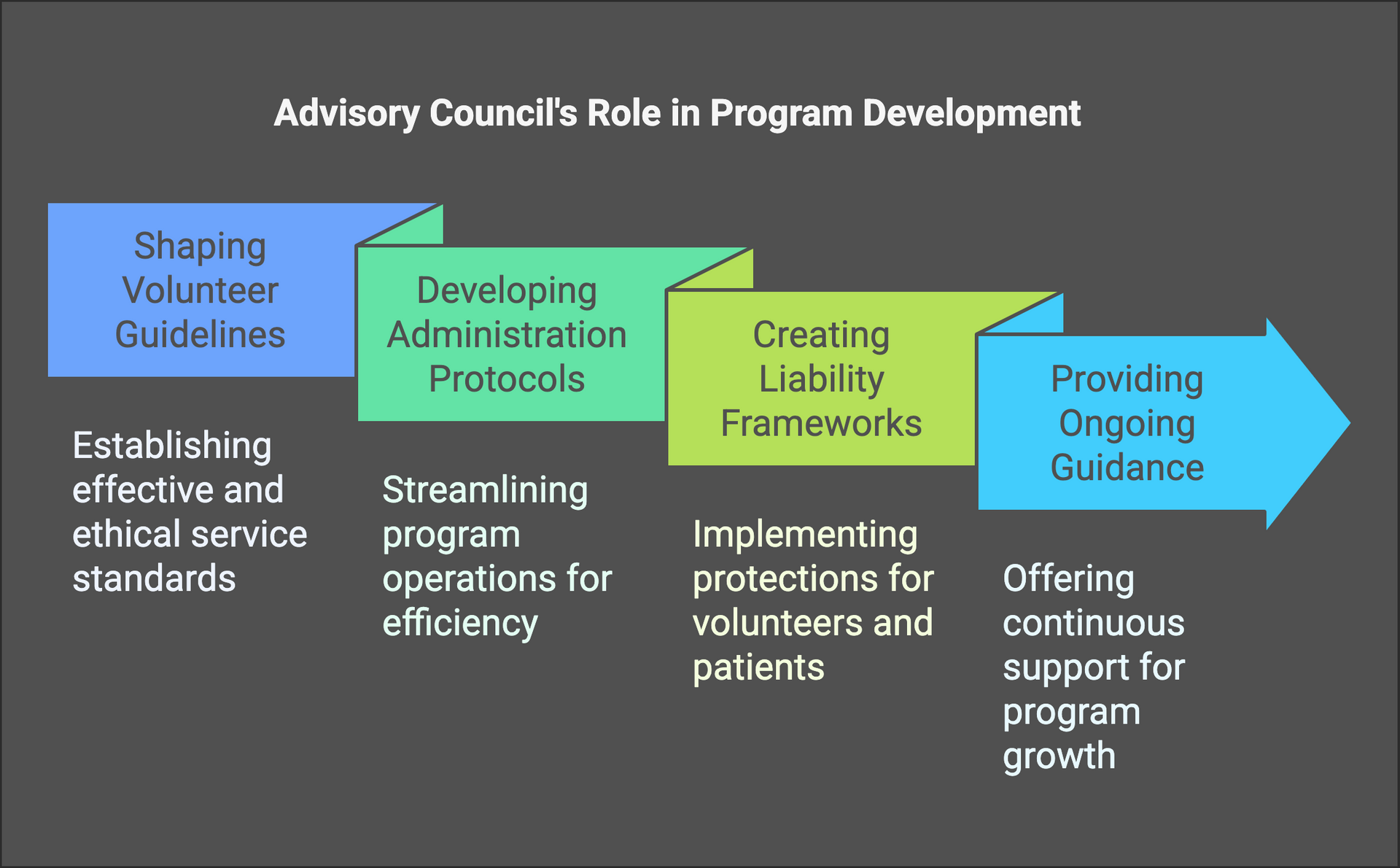
The Advisory Council will be instrumental in establishing a solid foundation for our program, ensuring that we operate with the highest standards of care and professionalism.
Program Operations
To implement this vision, BMI will focus on the following key operational areas:
Building a Network of Specialists: We will recruit and vet volunteer specialists from various fields, offering flexible commitment options to encourage participation.
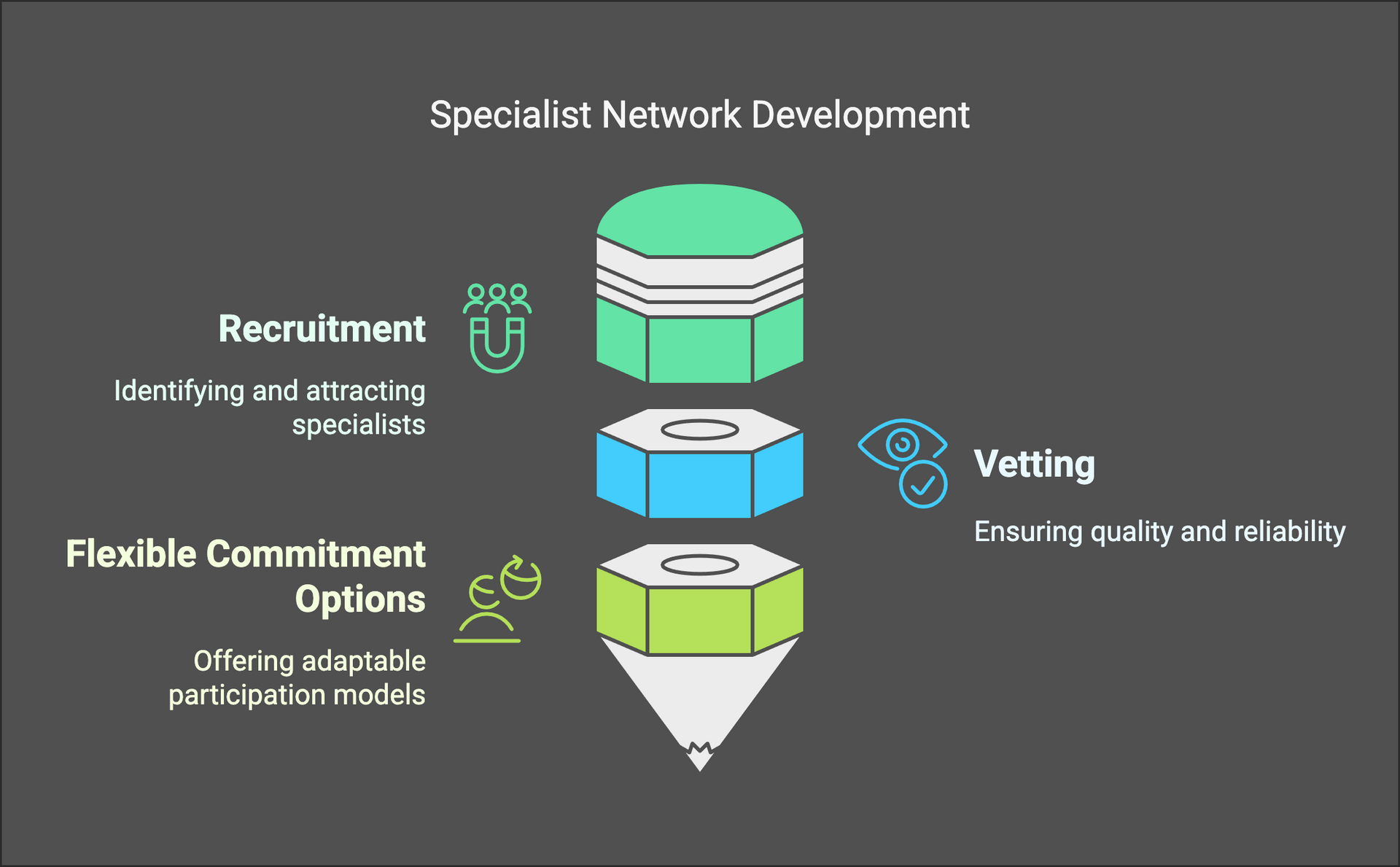
Needs Assessment Process:
Working with homeless outreach organizations, we will identify individuals needing specialty care and prioritize cases based on medical necessity and potential impact.

Care Coordination:
Our team will manage all aspects of care, from appointment scheduling to transportation and follow-up.
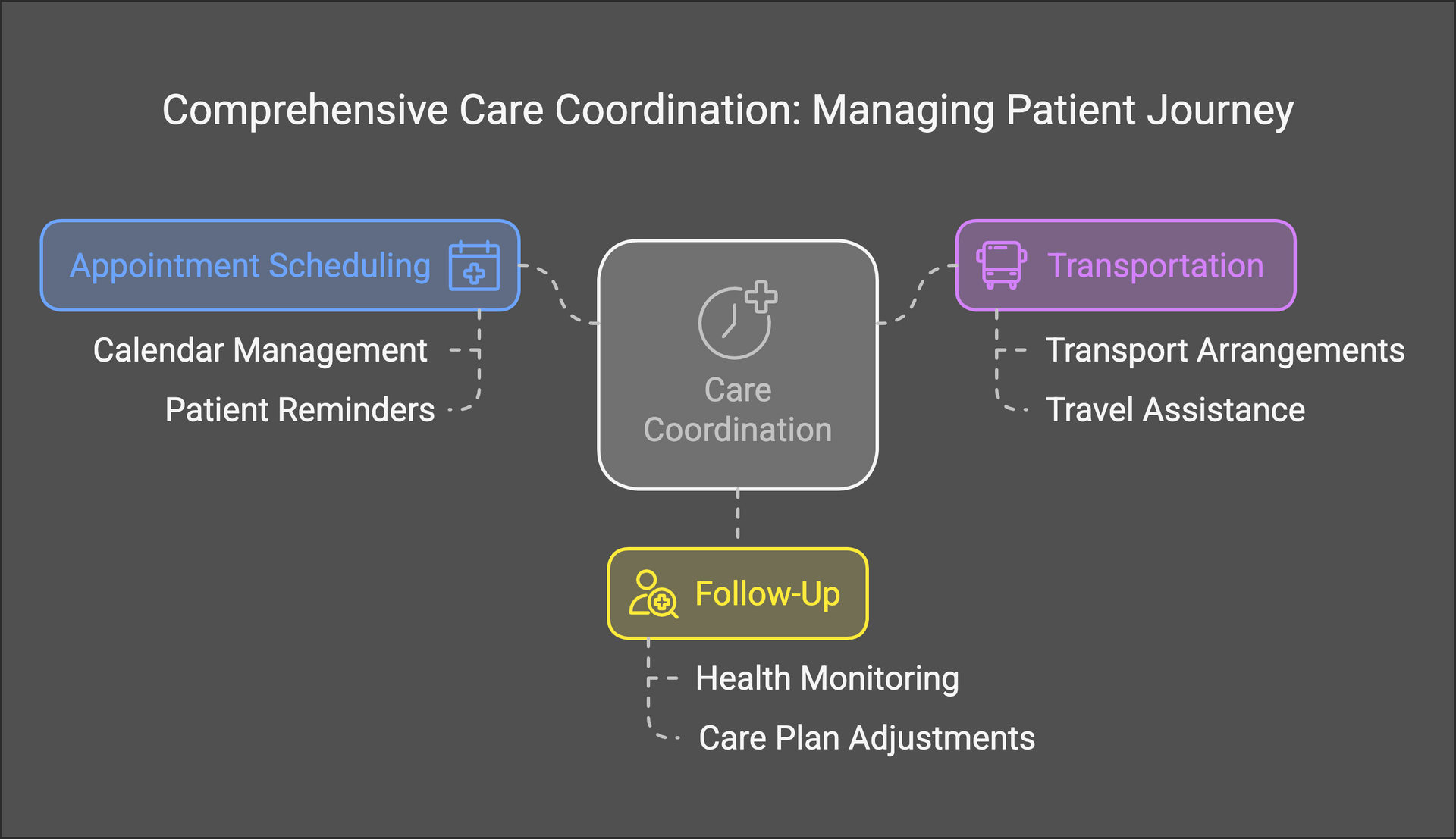
Support Services:
We will provide additional resources like health education, hygiene supplies, and assistance with obtaining necessary identification documents for healthcare access.
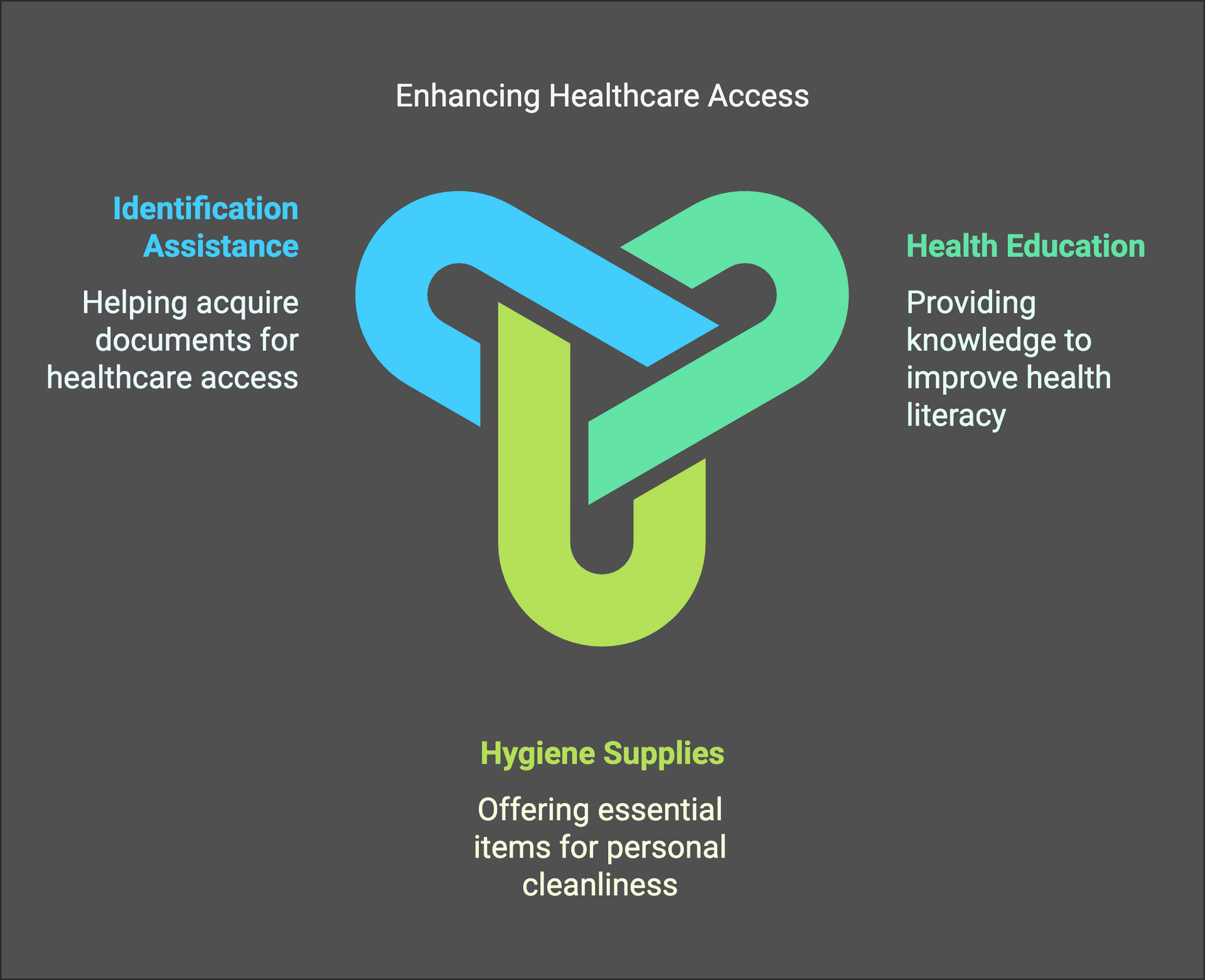
Expected Impact
Through the Compassionate Care Outreach Program, we anticipate achieving significant positive outcomes:
Improved Health Outcomes: Better management of chronic conditions, reduced complications from untreated health issues, and enhanced overall well-being.
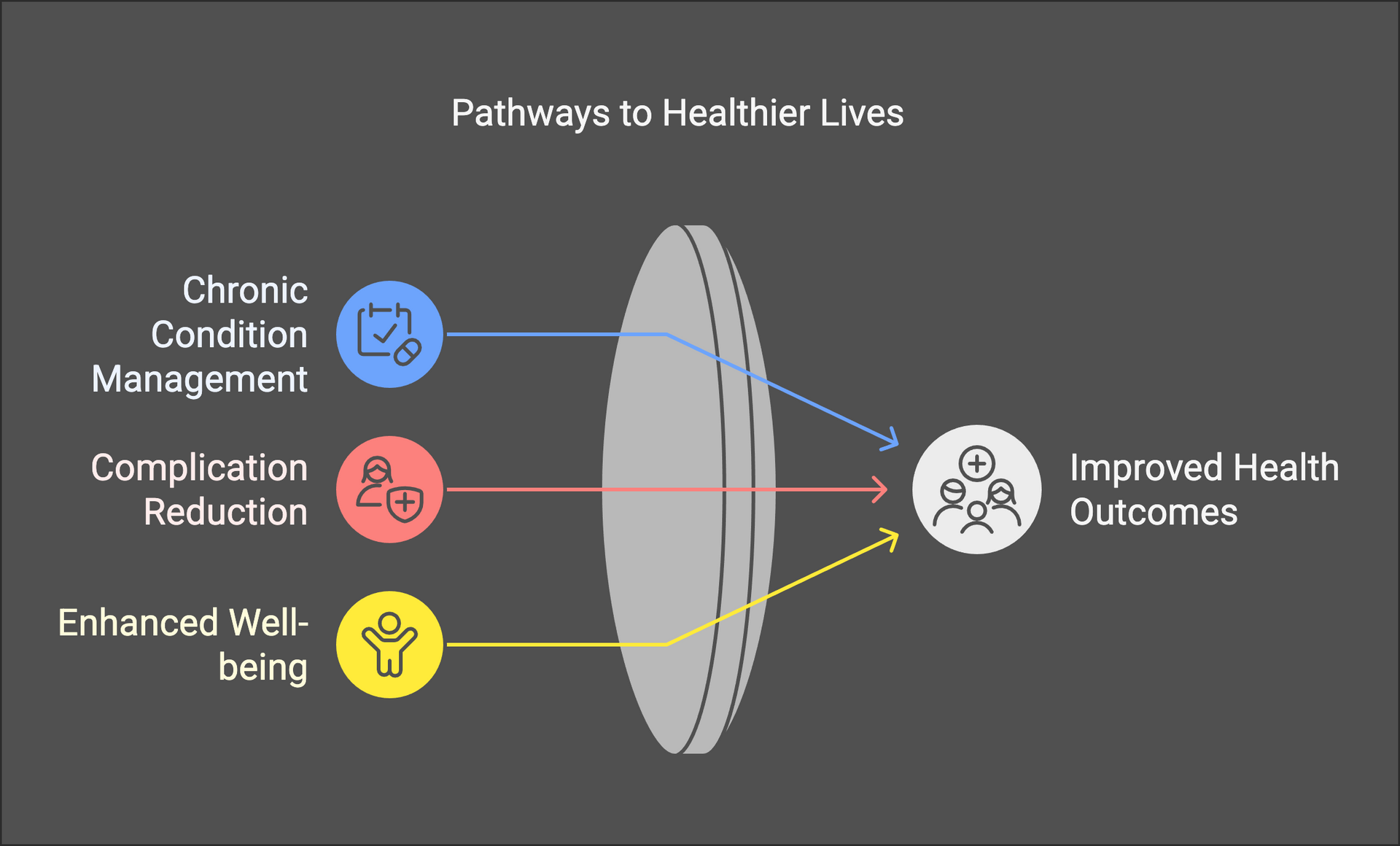
Reduced Burden on Emergency Services: Fewer emergency room visits for preventable conditions and decreased hospitalizations.
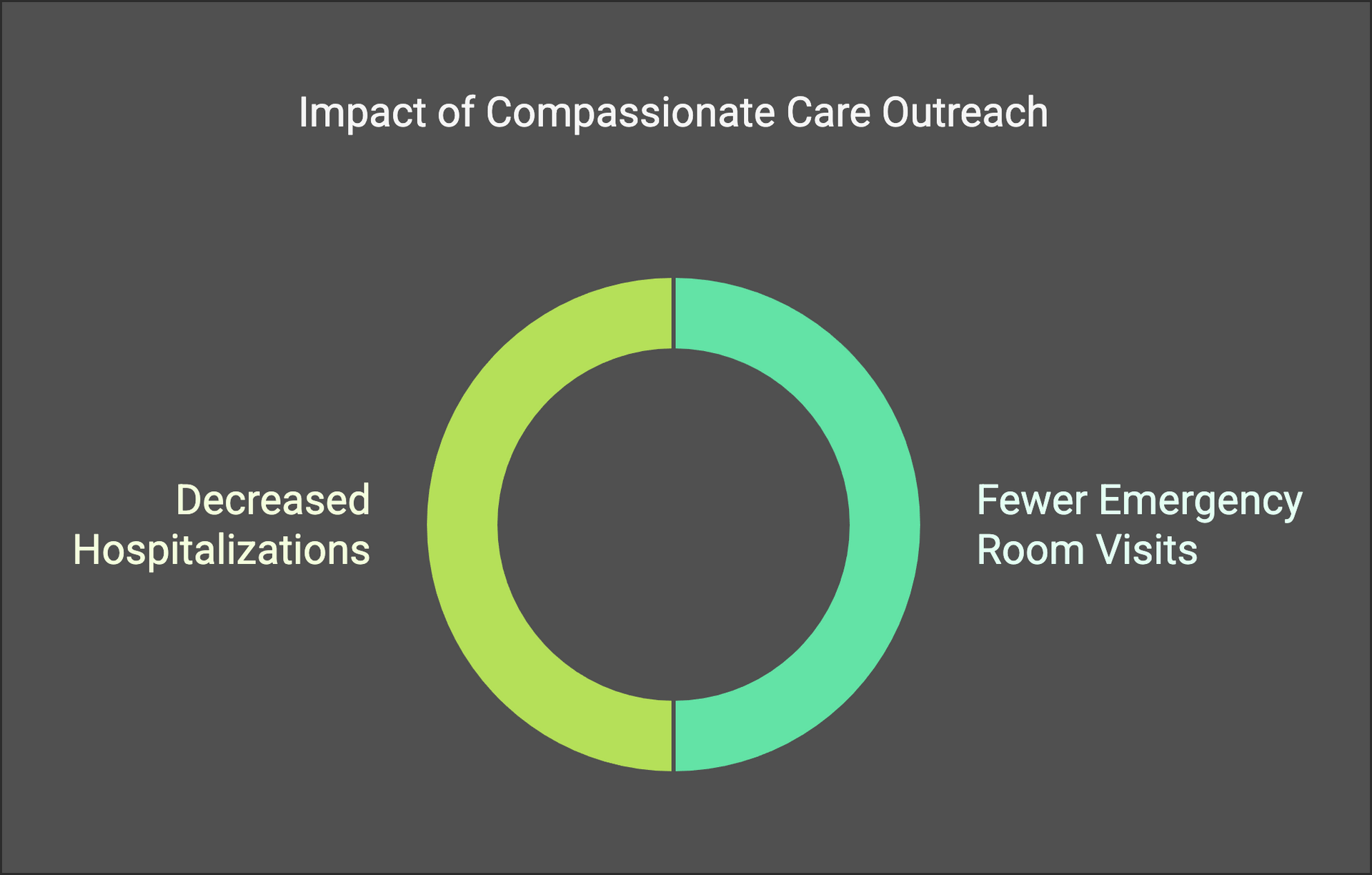
Enhanced Quality of Life: Improved mobility, reduced chronic pain, better vision and dental health, enhancing daily functioning and self-esteem.
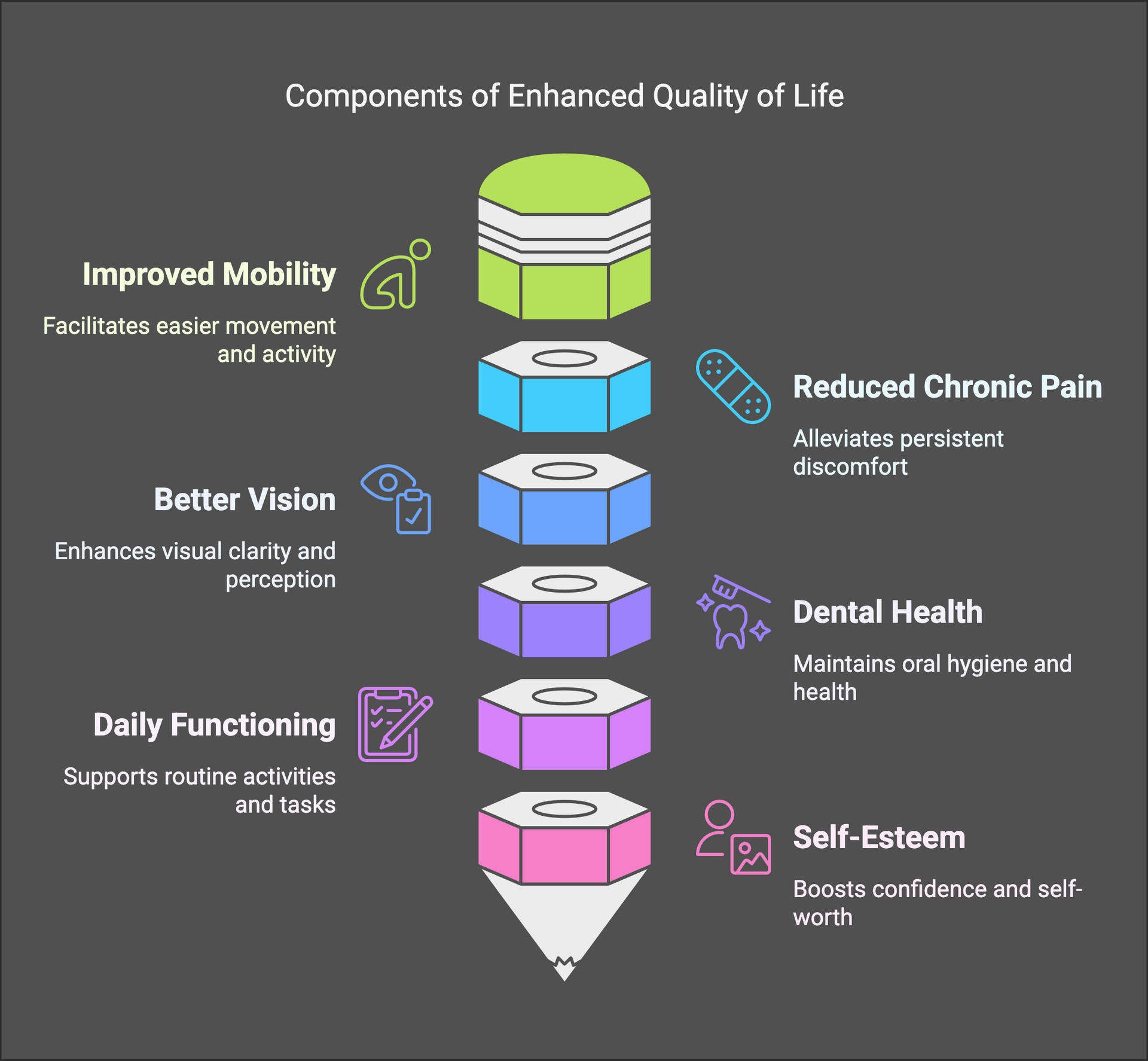
Potential Pathways out of Homelessness:
Improved health can remove significant barriers to obtaining and maintaining employment and housing.
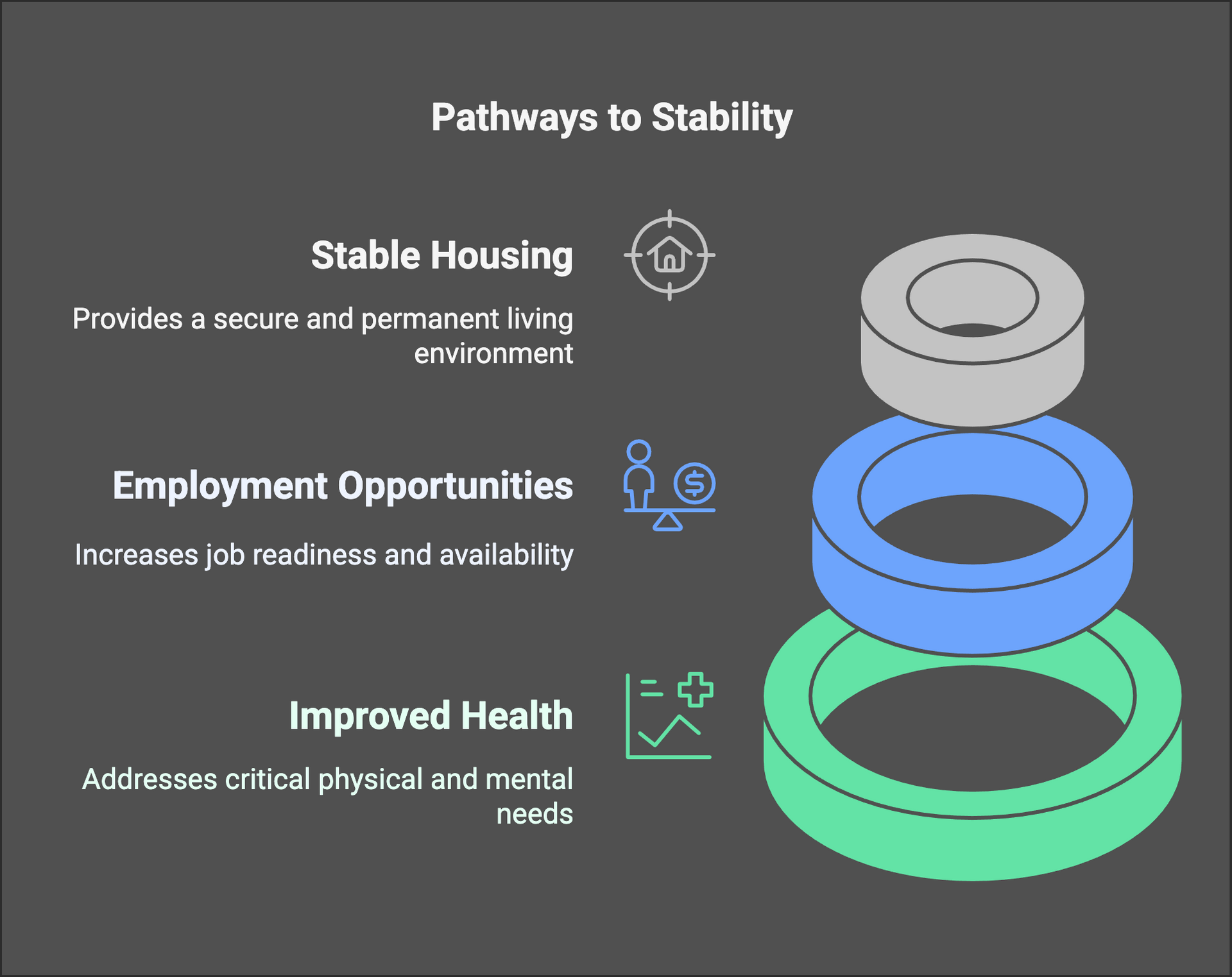
Community Impact: Reduced spread of communicable diseases and decreased public health costs.
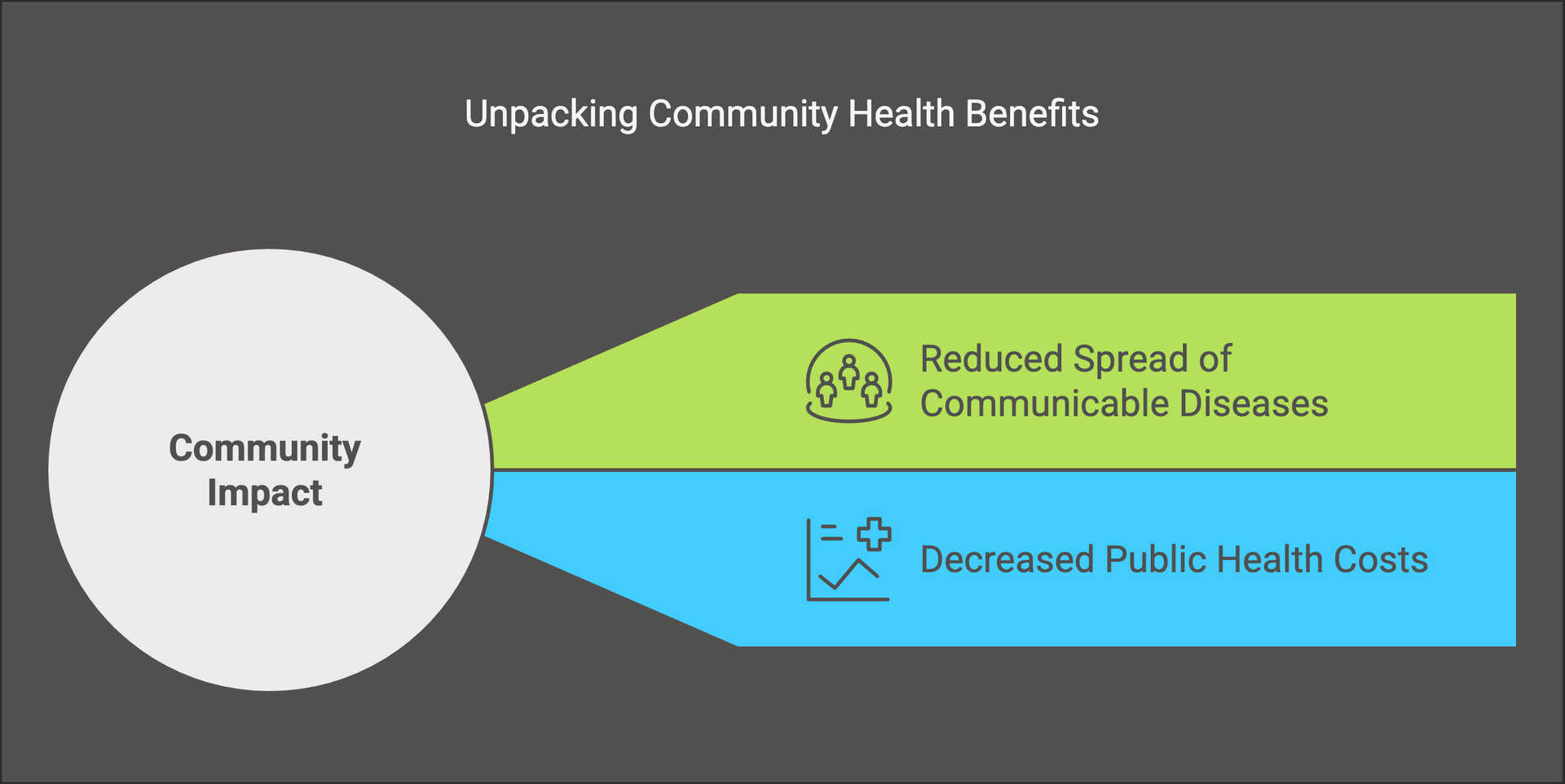
Call to Compassion
"For I was hungry and you gave me food. I was thirsty and you gave me drink. I was a stranger and you welcomed me. I was naked and you clothed me. I was sick and you visited me. I was in prison and you came to me."
Matthew 25:35-36 beautifully expresses our vision at Bible Ministries International as we aim to serve fellow children of God experiencing hardship through pro-bono physical and mental healthcare service coordination. We ask those willing and able to join our advisory council, volunteer time, donate supplies, or offer financial support. We invite you to join us in this crucial effort to bring compassionate, specialized care to those who need it most. Your involvement, whether through financial support, volunteering your time and expertise, or partnering with us, can help transform lives and contribute to a healthier, more compassionate society for all.
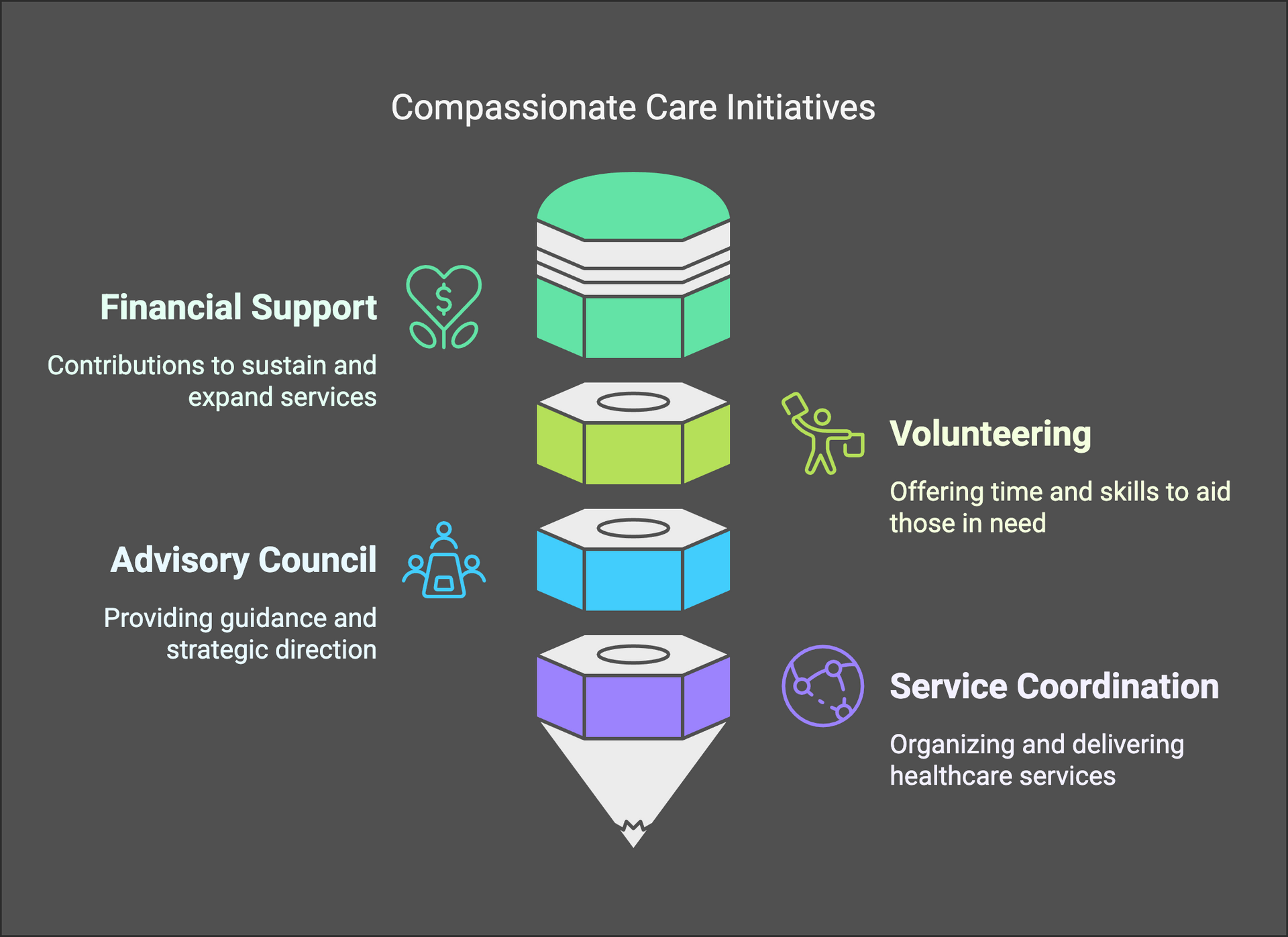
To get involved:
Healthcare Professionals: Volunteer your specialized skills
Donors: Support our program financially
General Volunteers: Assist with patient transportation, administrative tasks, and community education
Corporate Partners: Sponsor program components or offer employee volunteer opportunities
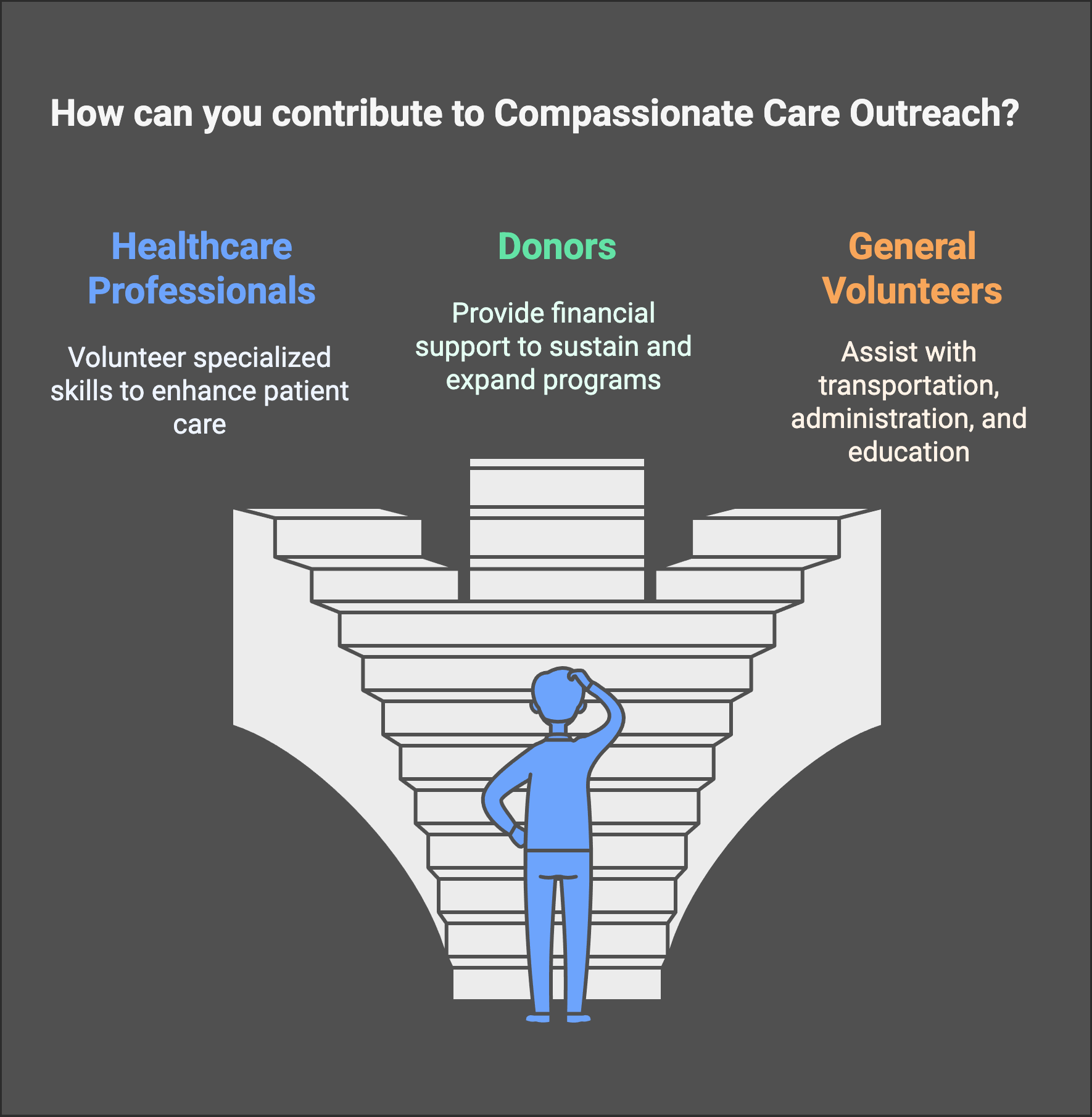
Together, we can bridge the gap in homeless healthcare and work towards a future where every individual, regardless of their housing status, has access to the care they need to live with dignity and hope.
Compassionate Care Outreach
Our Proposal
Bible Ministries International (BMI) recognizes that health is a fundamental, yet often overlooked, factor in addressing the homelessness crisis. While housing is crucial, simply creating places for people to sleep does not address the root problem of poor health that often perpetuates homelessness. We propose a groundbreaking approach: coordinating pro-bono specialty healthcare from volunteer private practitioners in Los Angeles and San Diego for individuals experiencing homelessness. By focusing on health, we aim to create transformative change that can dramatically alter the trajectory of homeless individuals' lives.
Scope of Need
On a single night in January 2023, volunteers counted over 60,000 homeless people seeking shelter across Los Angeles County during the annual Point in Time census. These numbers represent a crisis of immense proportions, with thousands facing nights of exposure without reliable refuge from violence, untreated illnesses, and the demons of mental anguish. The health challenges faced by this population are numerous and severe, including chronic physical conditions, acute medical needs, mental health disorders, substance use issues, and numerous other health concerns exacerbated by their living conditions.
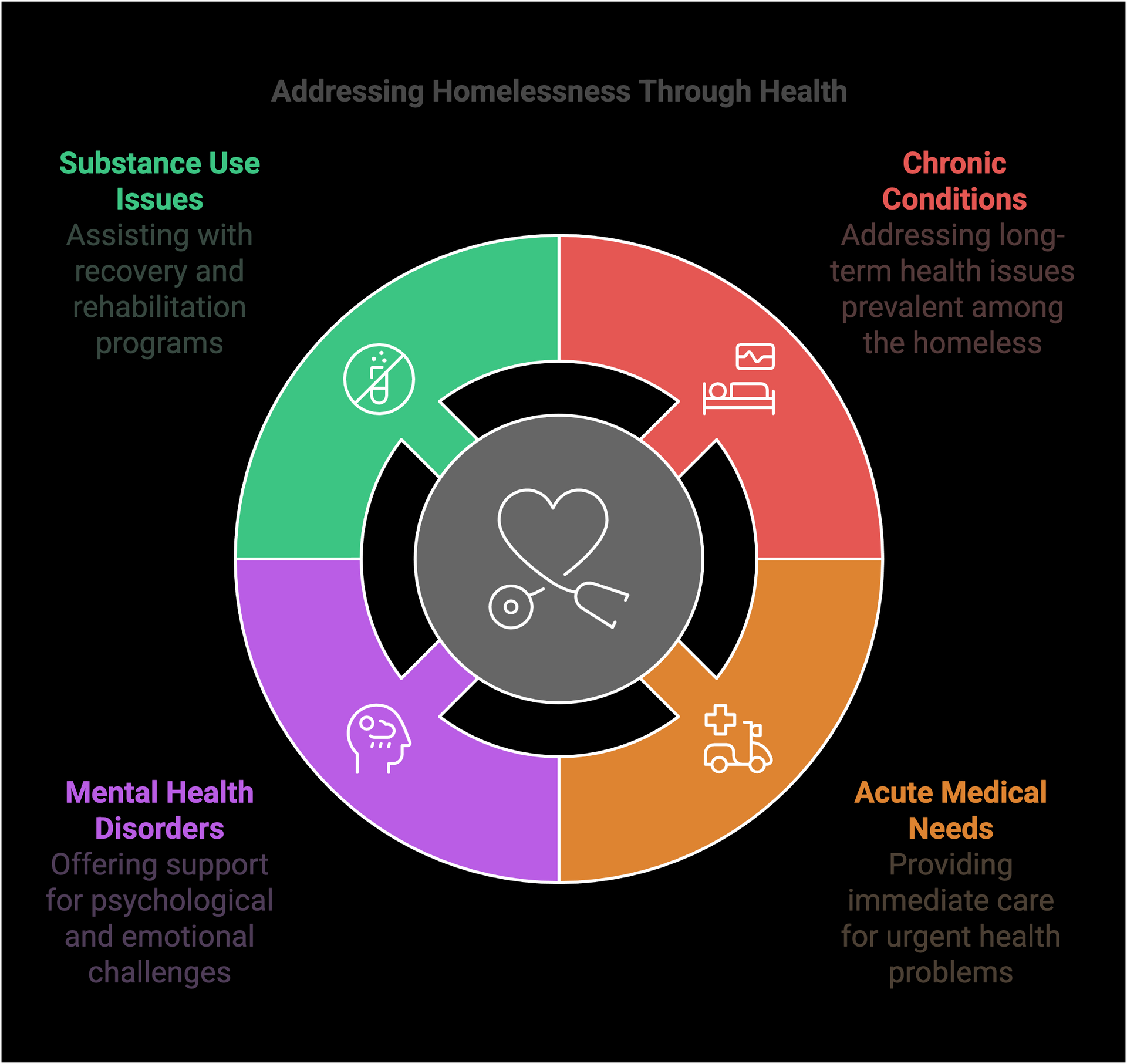
Building a Foundation of Service
As California continues seeking solutions to its homelessness crisis, public health infrastructure strains under excessive demand from underserved groups lacking alternative access points. Emergency room visits have sharply risen for manageable conditions or preventable escalations when ongoing care falls out of reach. Meanwhile, many licensed practitioners have excess capacity and a calling for community service if only connectivity and liability considerations were addressed.
While debates persist around root societal causes, BMI refuses idleness over inaction and urgently seeks avenues for compassion that reach populations where they are. We believe healing starts by building trust through medicine not mandated by badges nor courts nor psychiatry ward confines, but rather care grounded in understanding each patient as fellow community members deserving dignity. This manifests through voluntary physical therapy, optometry screenings, palliative resources, and counseling unbound by backlogged complex care systems but facilitated through the goodwill of practitioners with willingness if liability barriers are eliminated. Our inception realigns focus on the personal not political.
BMI proposes acting as a conduit between good Samaritan clinicians across specialties and residents at shelters unable to navigate disparate health systems alone. Volunteers will provide triage, diagnostics, chronic disease management, wound care, infection testing, counseling, dental services, and other interventions during clinics at local shelters or through referrals to their practices if transport is assured. Some may only donate a few hours per month based on bandwidth. However, through expansive outreach across medical associations, health systems, and clinics, we aim to involve hundreds of volunteers to avoid overburdening individuals. Those served will include the medically fragile, mentally ill, and neurodiverse groups most likely to languish on the streets or cycle between ER and shelter without stable recovery plans.
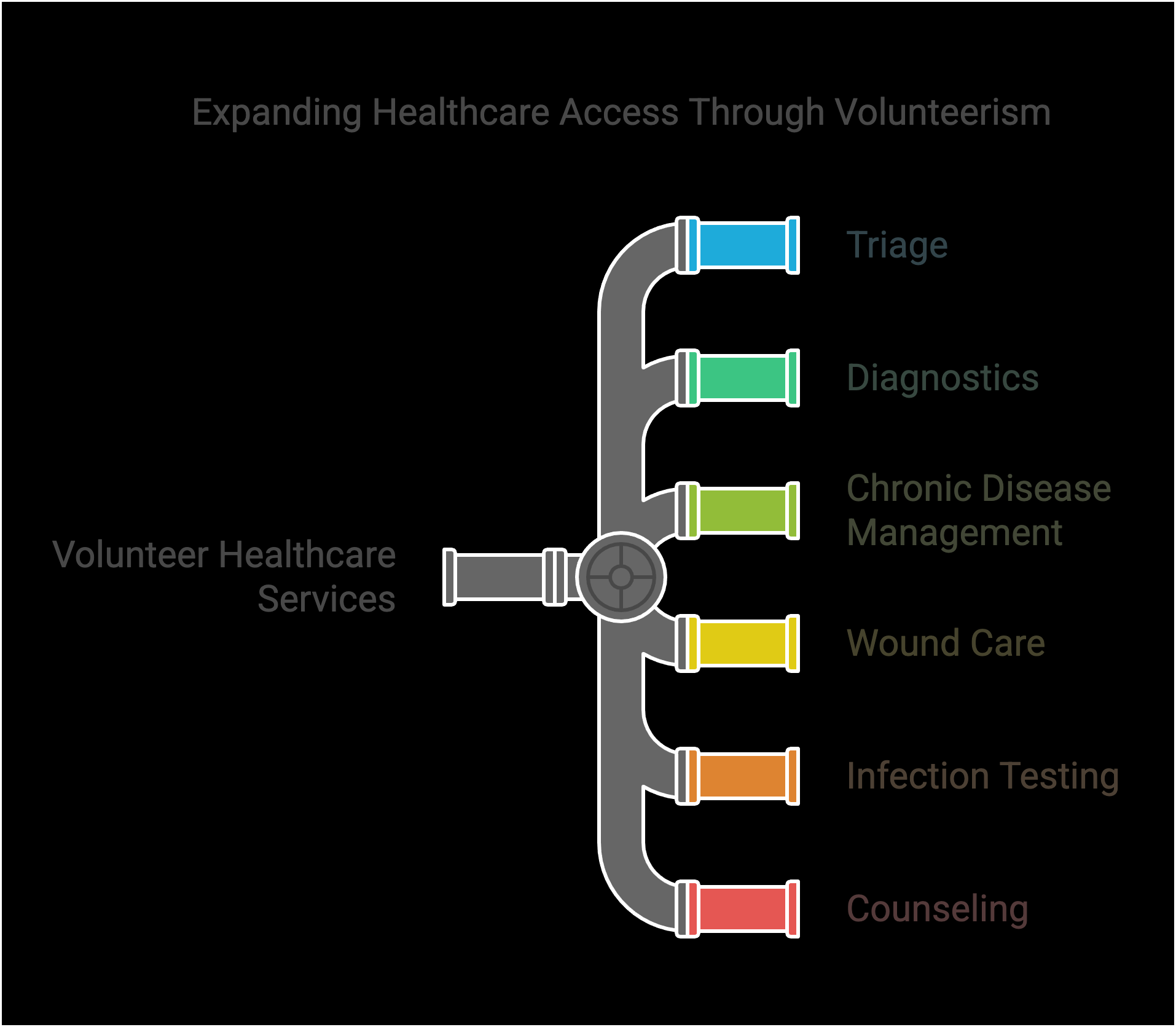
Approach
The Compassionate Care Outreach Program takes a unique approach to addressing these challenges:
Focus on Specialty Care: We connect homeless individuals with volunteer specialists in orthopedics, dermatology, podiatry, dentistry, ophthalmology, endocrinology, psychiatry, physical therapy, chiropractic care, and nutrition counseling.
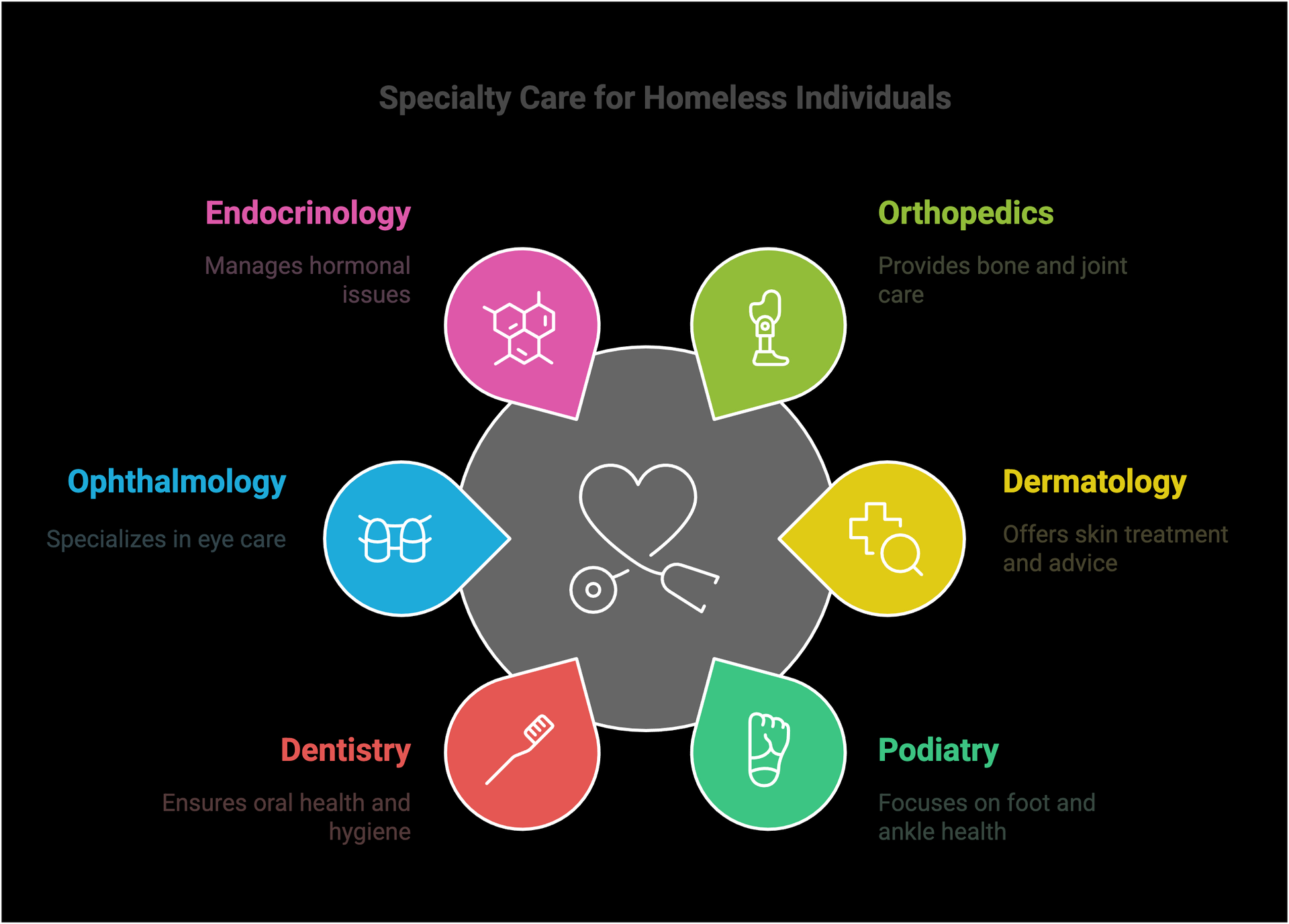
Leveraging Private Practitioners: We tap into the often-underutilized resource of private practitioners willing to donate their services.
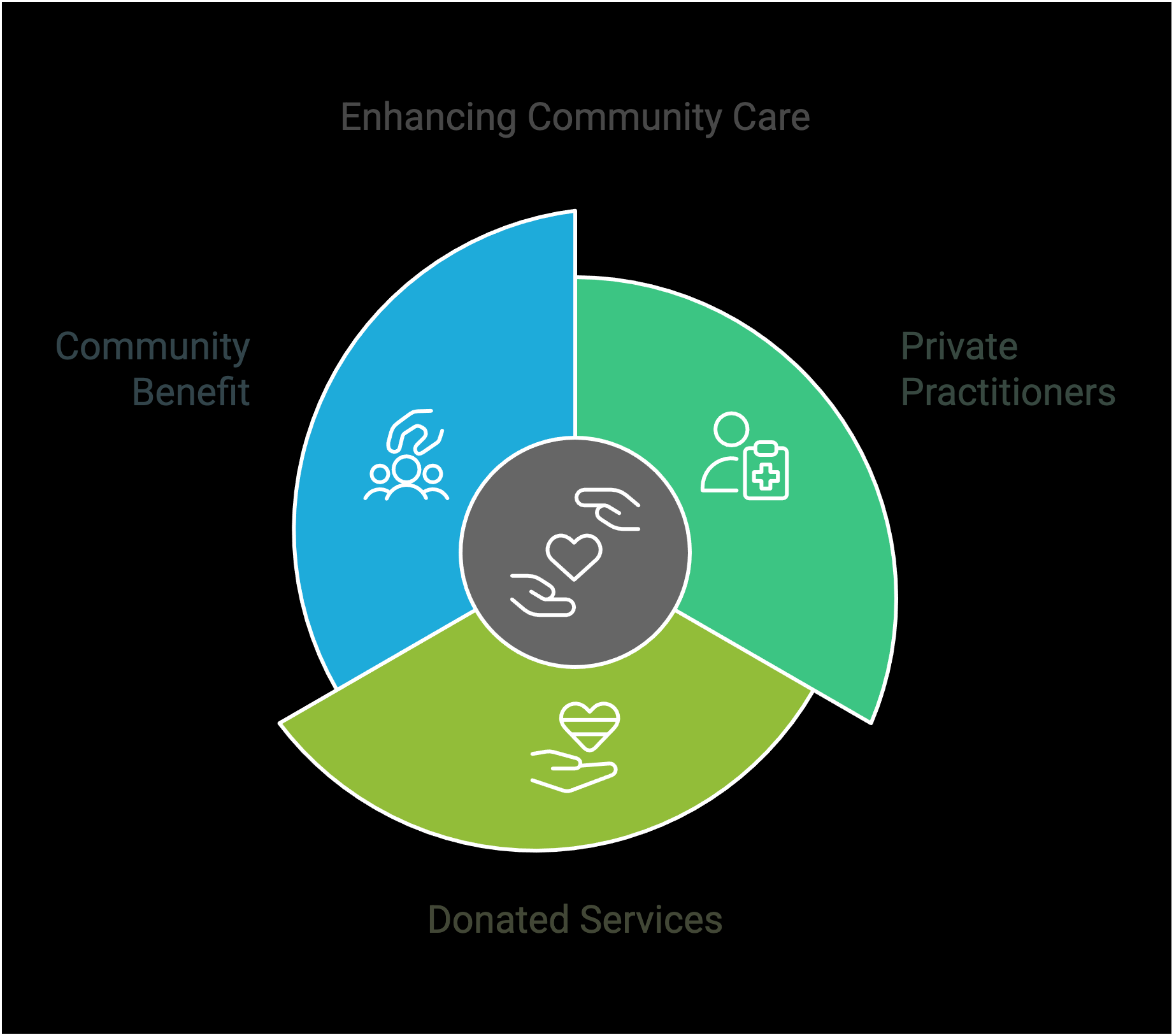
Comprehensive Care Coordination: We actively manage appointments, transportation, and follow-up care.
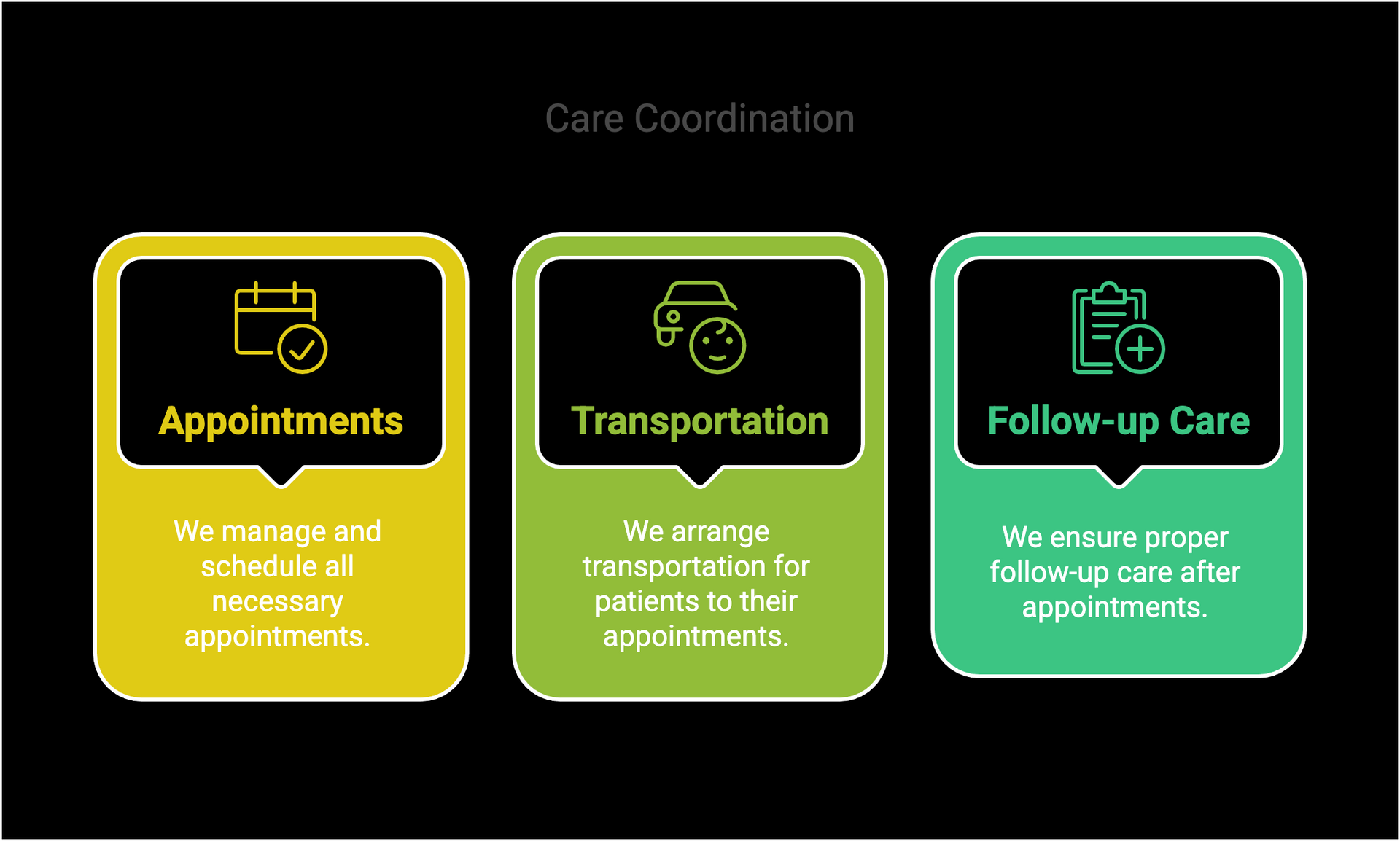
Dignity-Centered Approach: We prioritize treating each individual with respect, recognizing their humanity beyond their housing status.
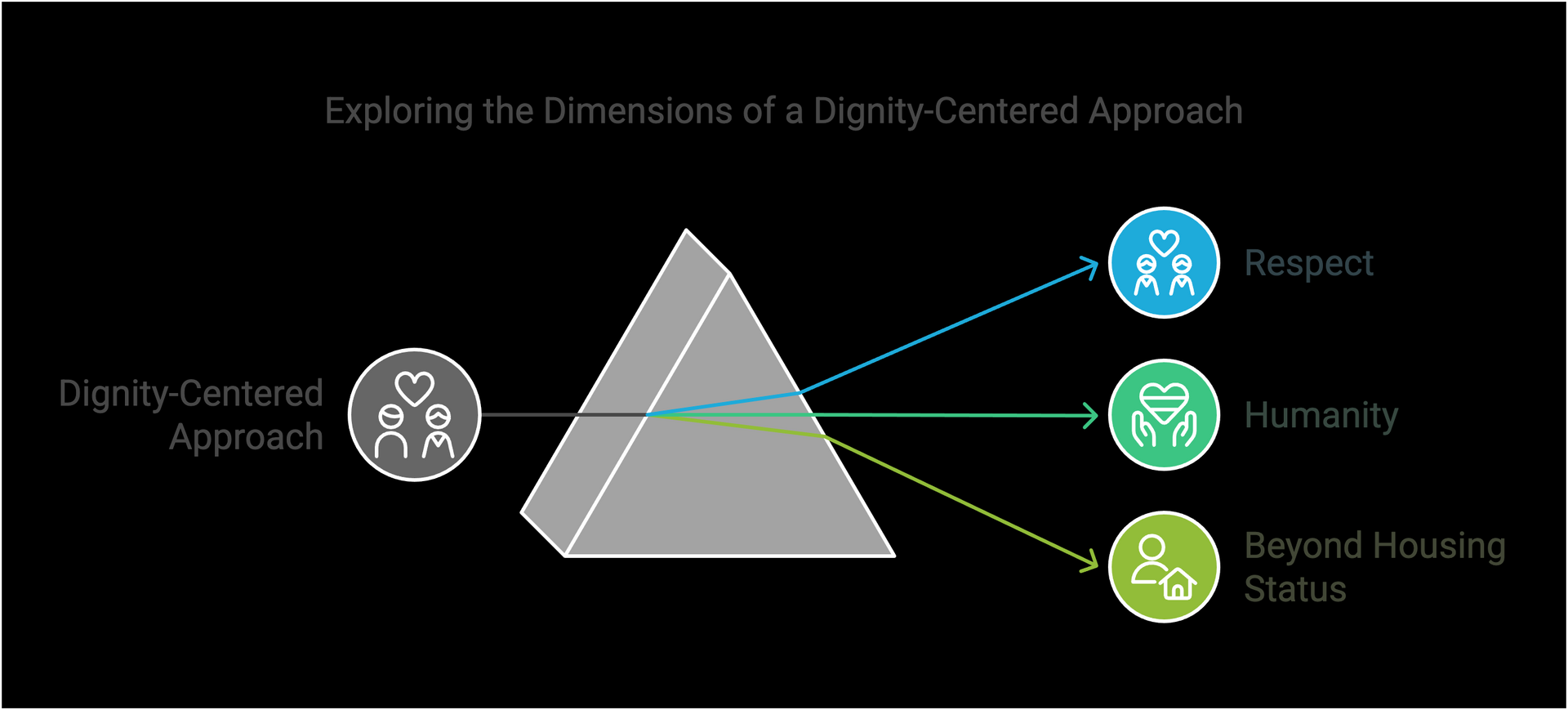
First Step
Central to our approach is the recruitment of an Advisory Council: We are actively seeking healthcare providers, administrators, and policy experts to form an Advisory Council.
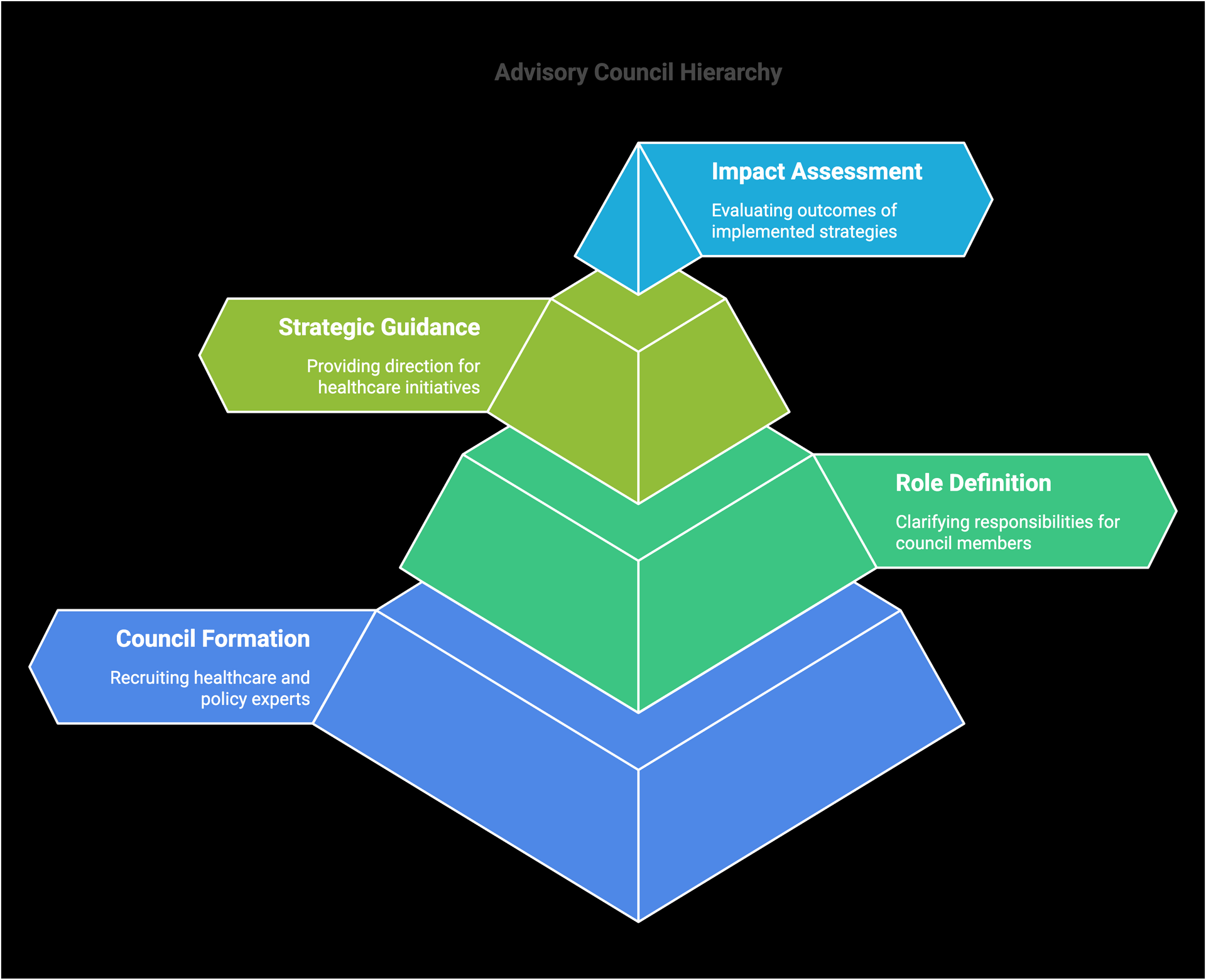
This council will play a crucial role in:
-Shaping volunteer guidelines to ensure effective and ethical service
-Developing administration protocols for smooth program operations
-Creating liability frameworks to protect both volunteers and patients
-Providing ongoing guidance on program development and expansion
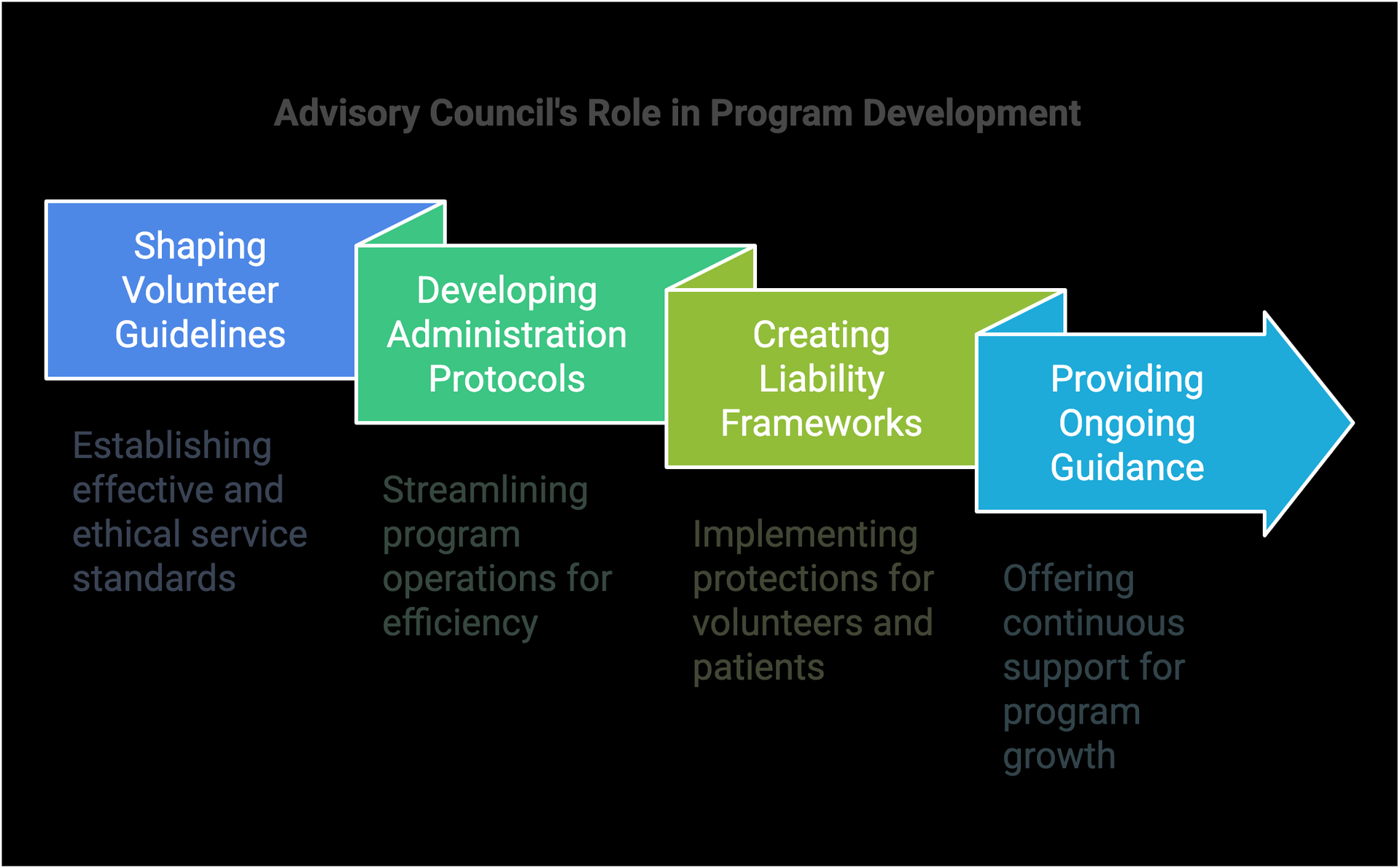
The Advisory Council will be instrumental in establishing a solid foundation for our program, ensuring that we operate with the highest standards of care and professionalism.
Program Operations
To implement this vision, BMI will focus on the following key operational areas:
Building a Network of Specialists: We will recruit and vet volunteer specialists from various fields, offering flexible commitment options to encourage participation.
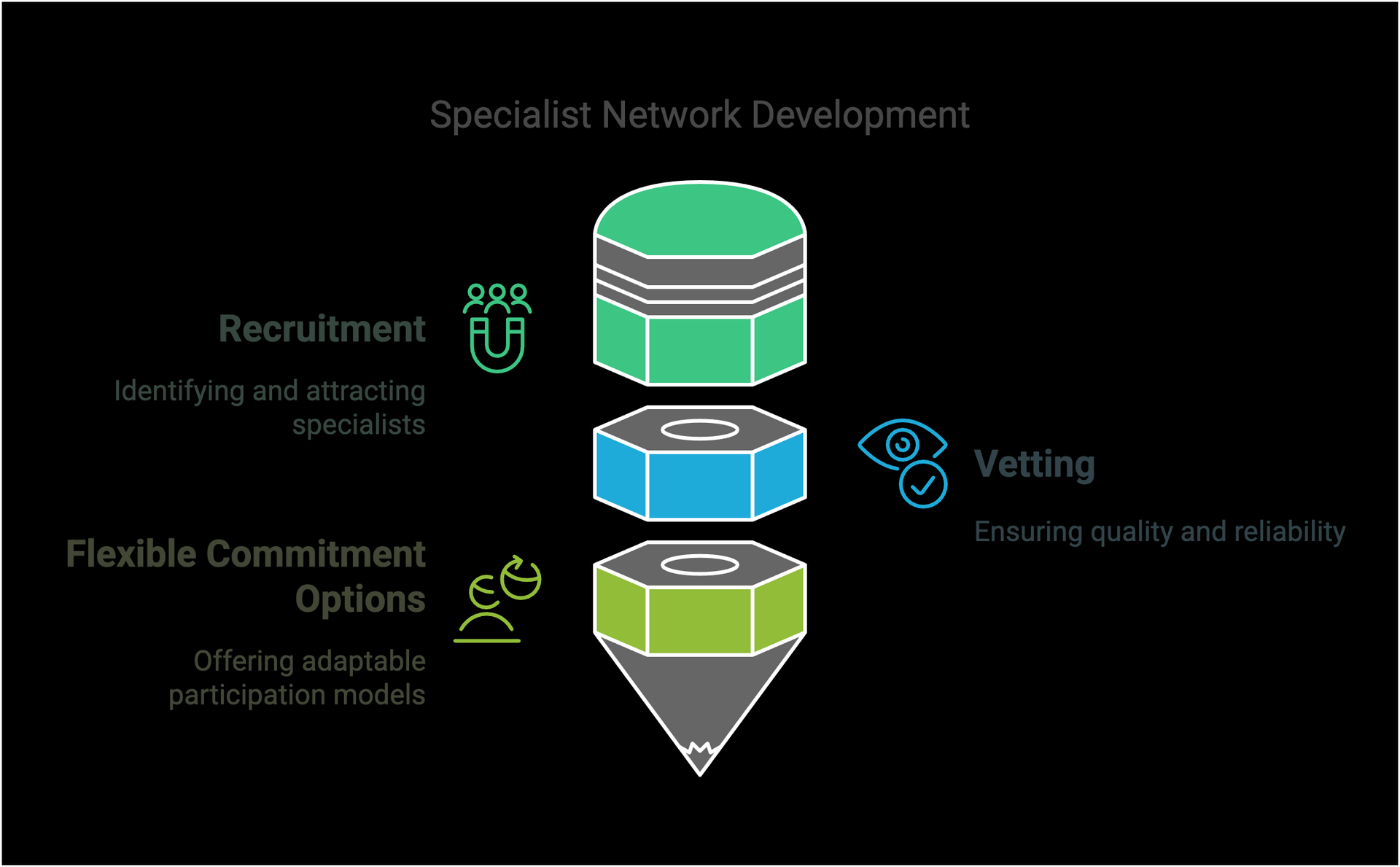
Needs Assessment Process: Working with homeless outreach organizations, we will identify individuals needing specialty care and prioritize cases based on medical necessity and potential impact.

Care Coordination: Our team will manage all aspects of care, from appointment scheduling to transportation and follow-up.
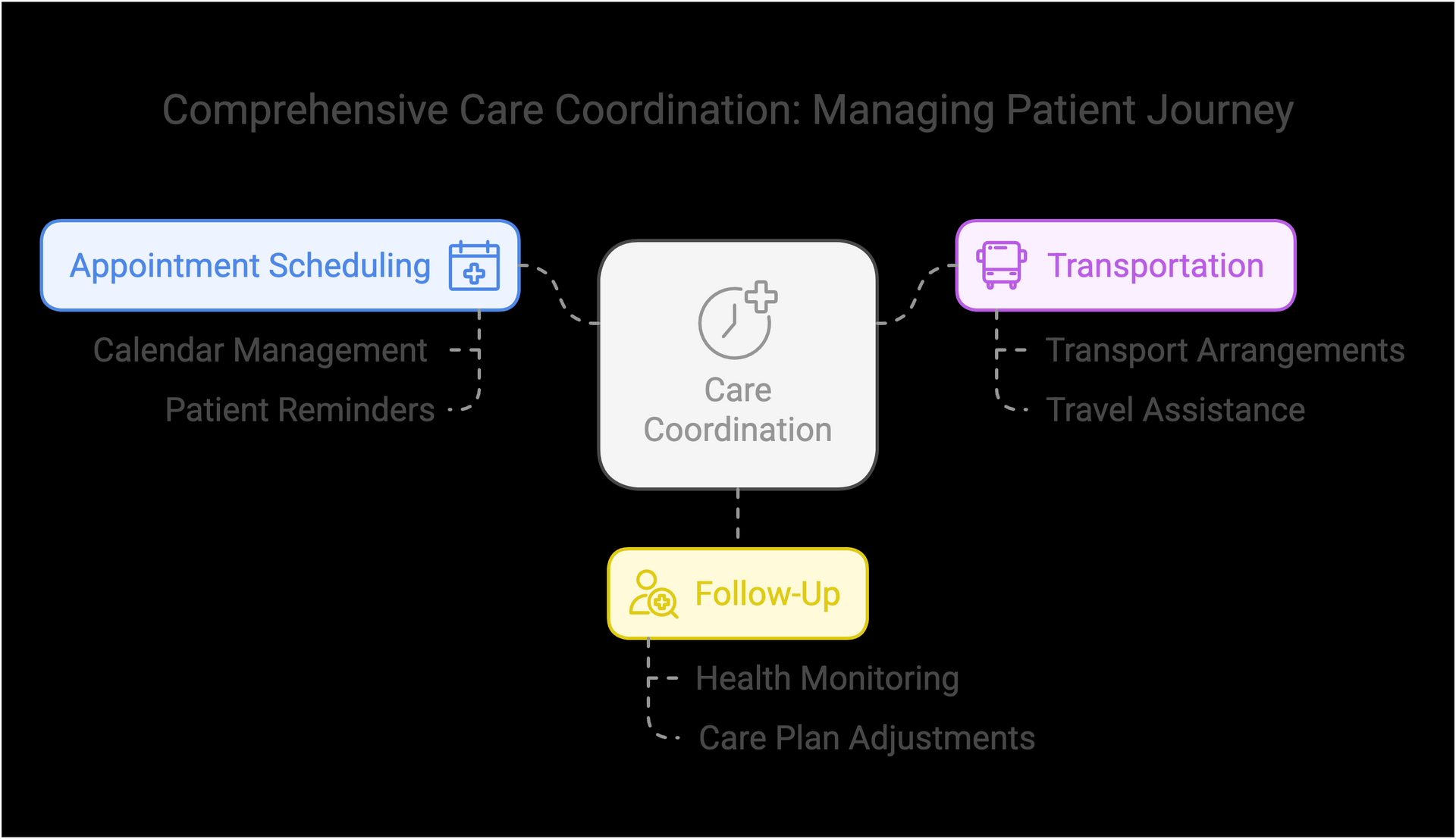
Support Services: We will provide additional resources like health education, hygiene supplies, and assistance with obtaining necessary identification documents for healthcare access.
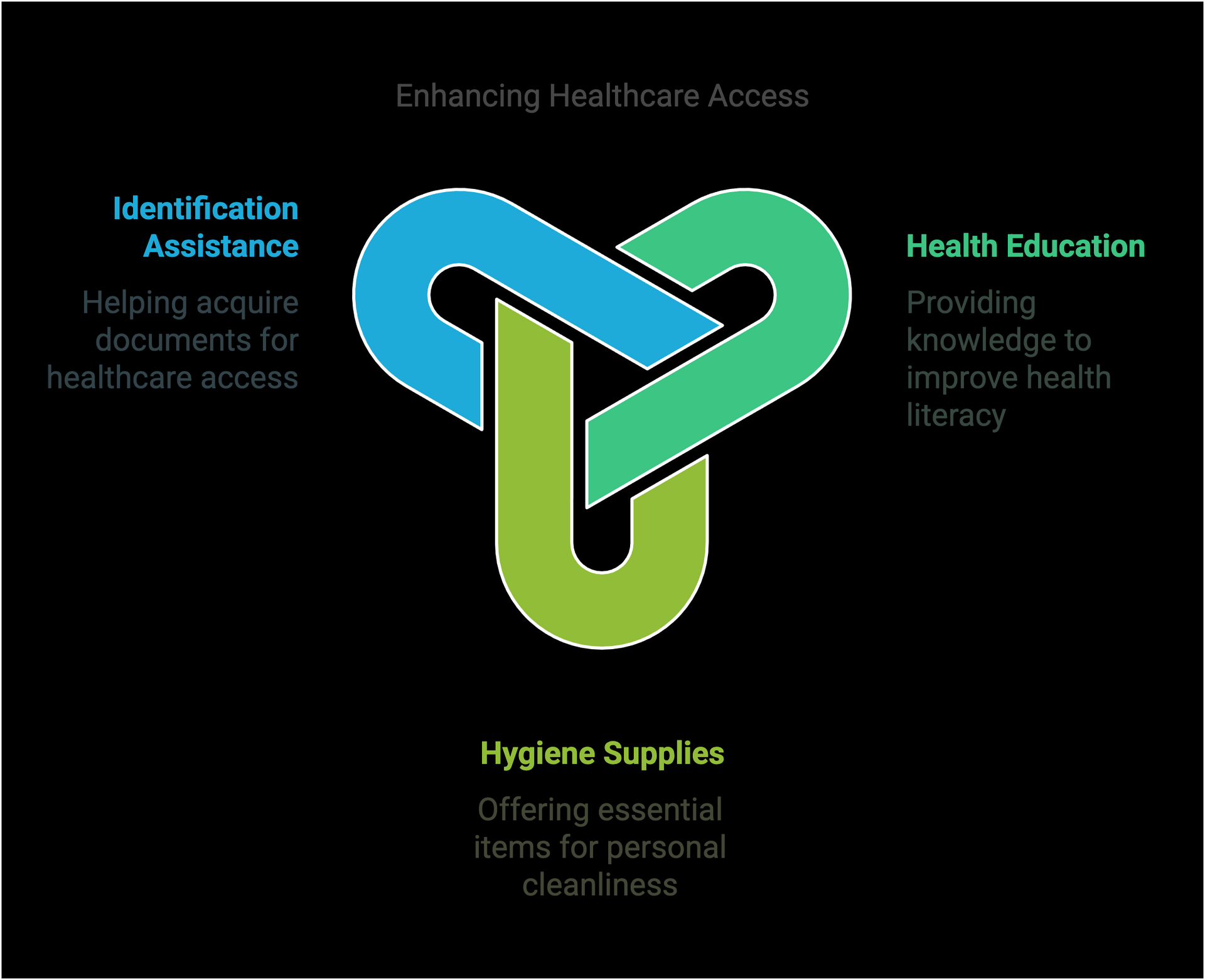
Expected Impact
Through the Compassionate Care Outreach Program, we anticipate achieving significant positive outcomes:
Improved Health Outcomes: Better management of chronic conditions, reduced complications from untreated health issues, and enhanced overall well-being.
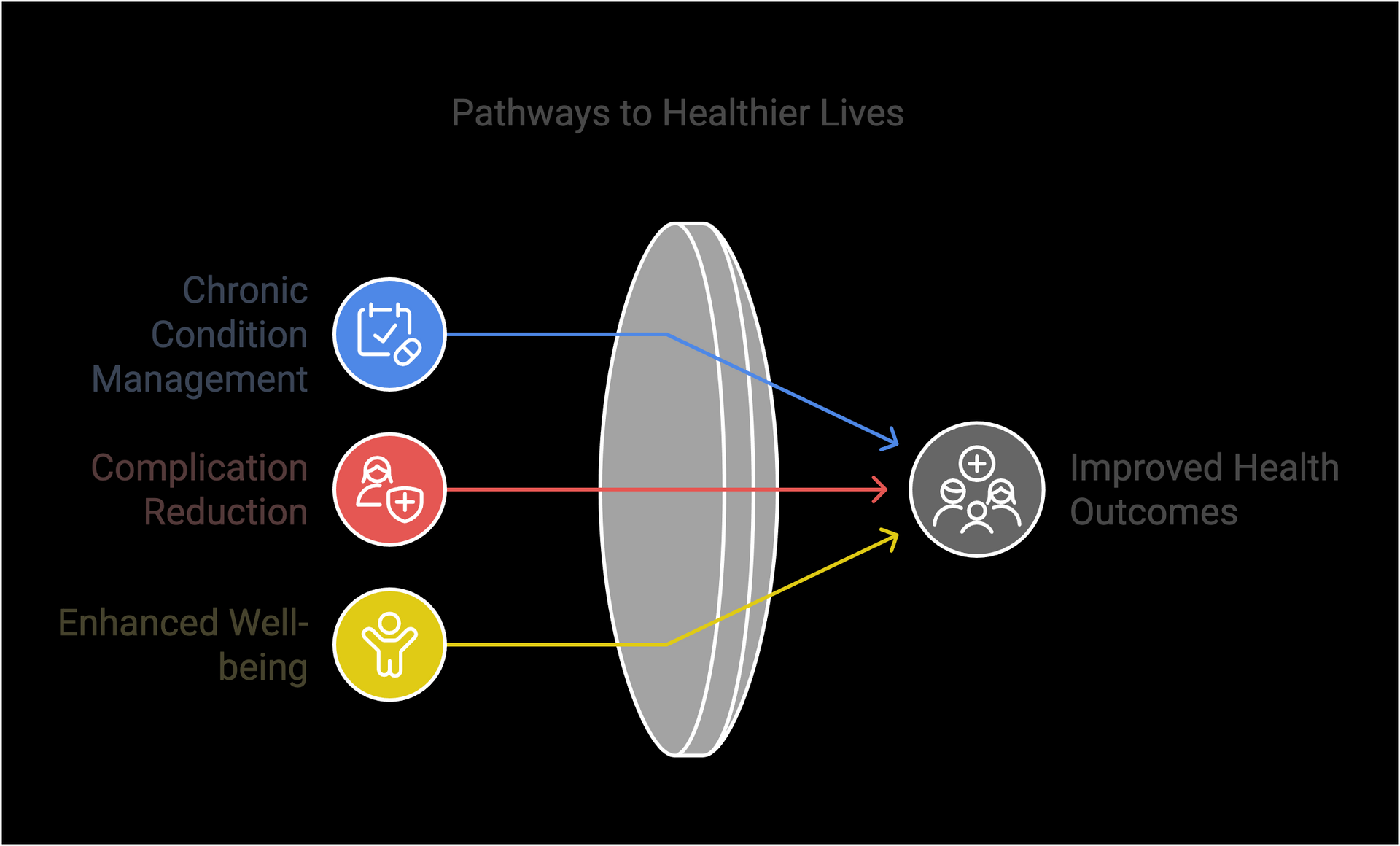
Reduced Burden on Emergency Services: Fewer emergency room visits for preventable conditions and decreased hospitalizations.
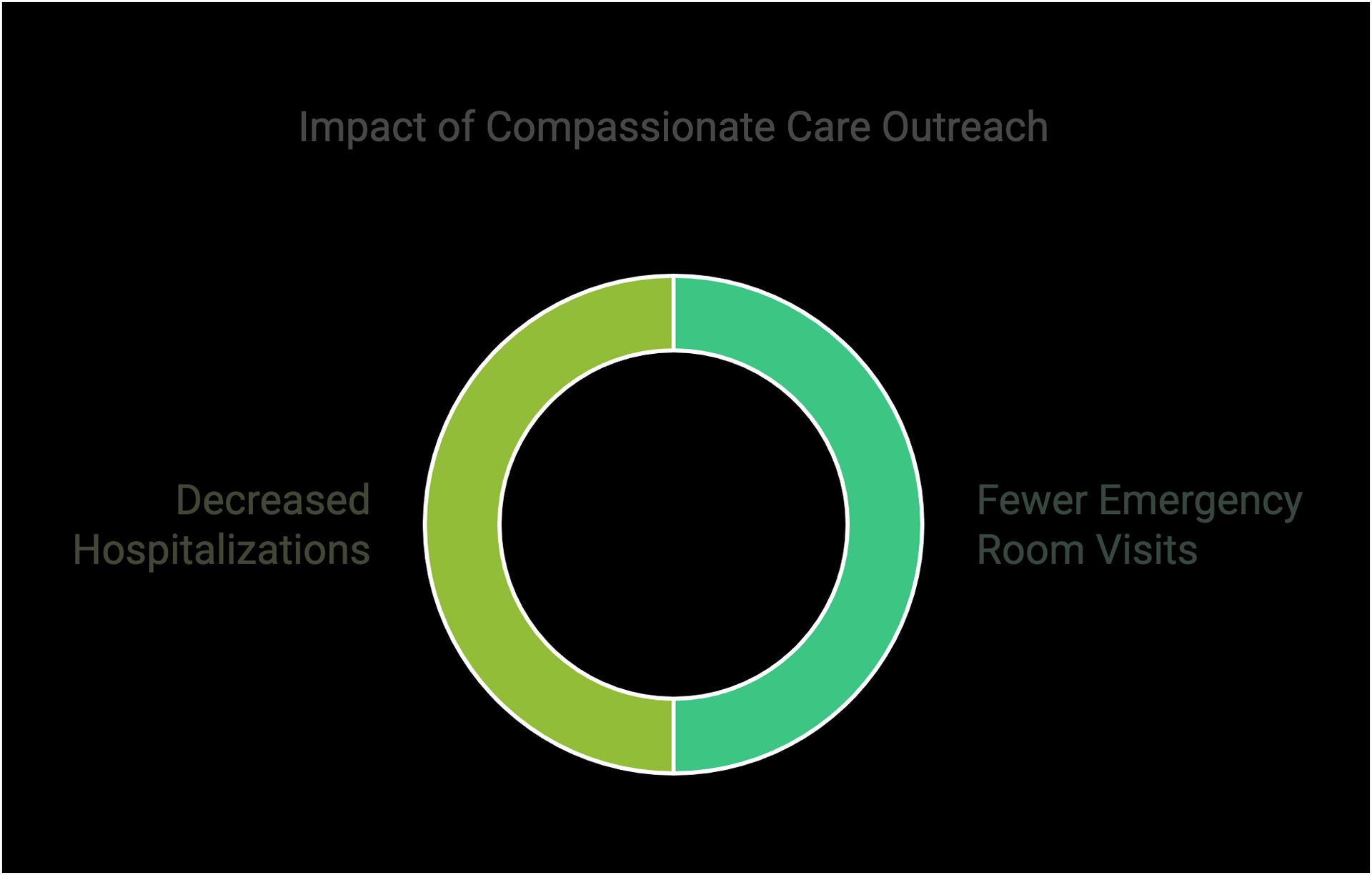
Enhanced Quality of Life: Improved mobility, reduced chronic pain, better vision and dental health, enhancing daily functioning and self-esteem.
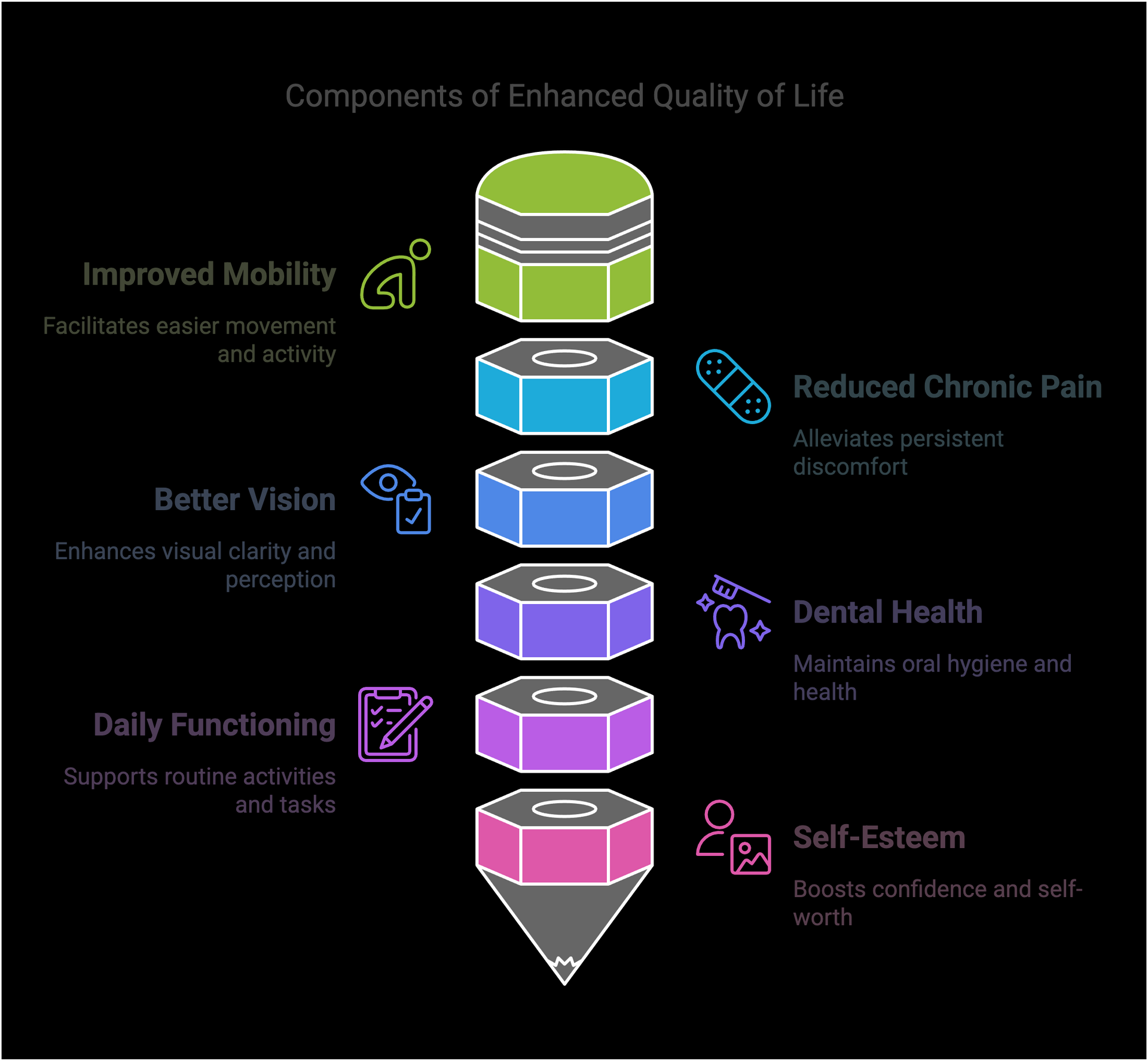
Potential Pathways out of Homelessness: Improved health can remove significant barriers to obtaining and maintaining employment and housing.
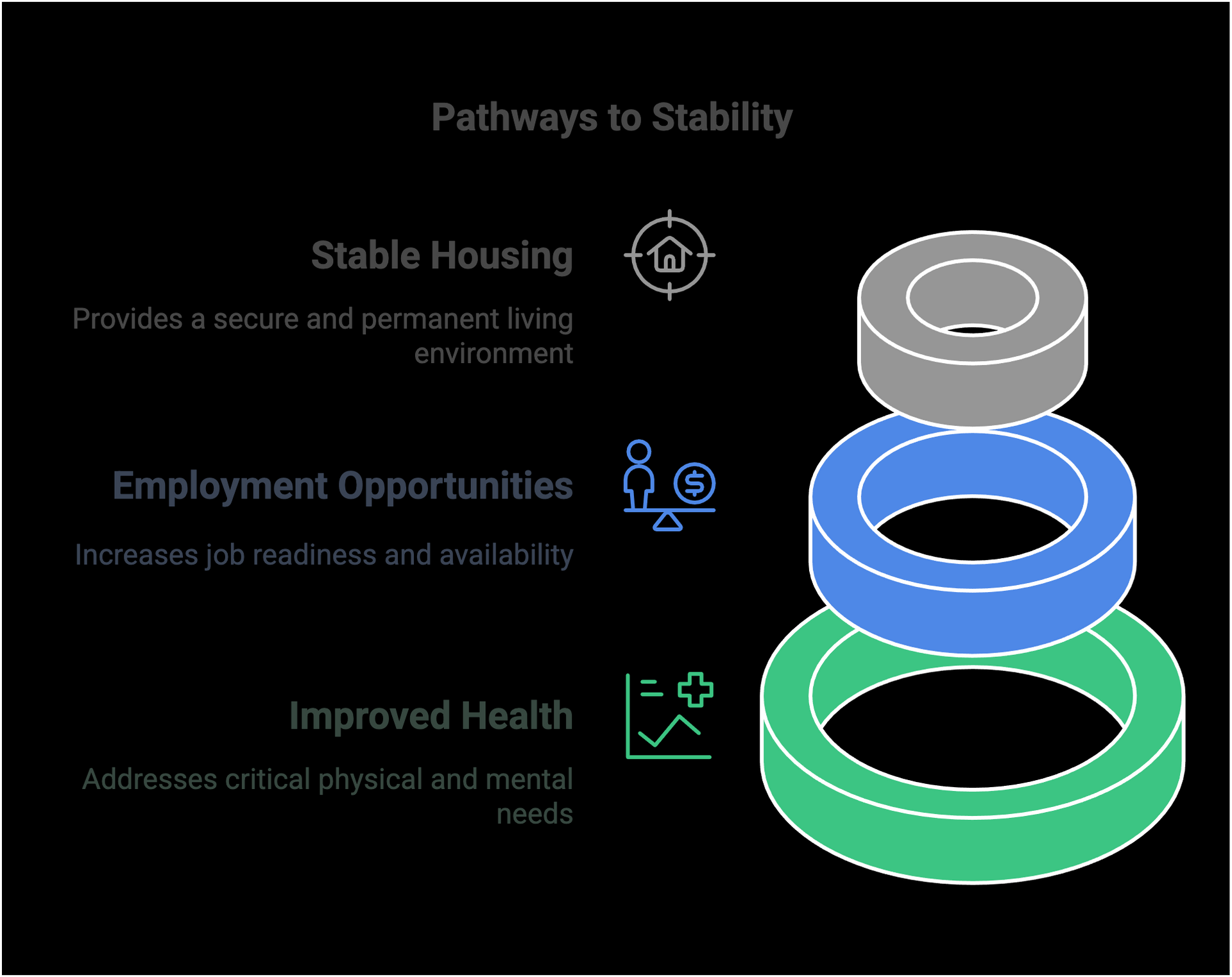
Community Impact: Reduced spread of communicable diseases and decreased public health costs.
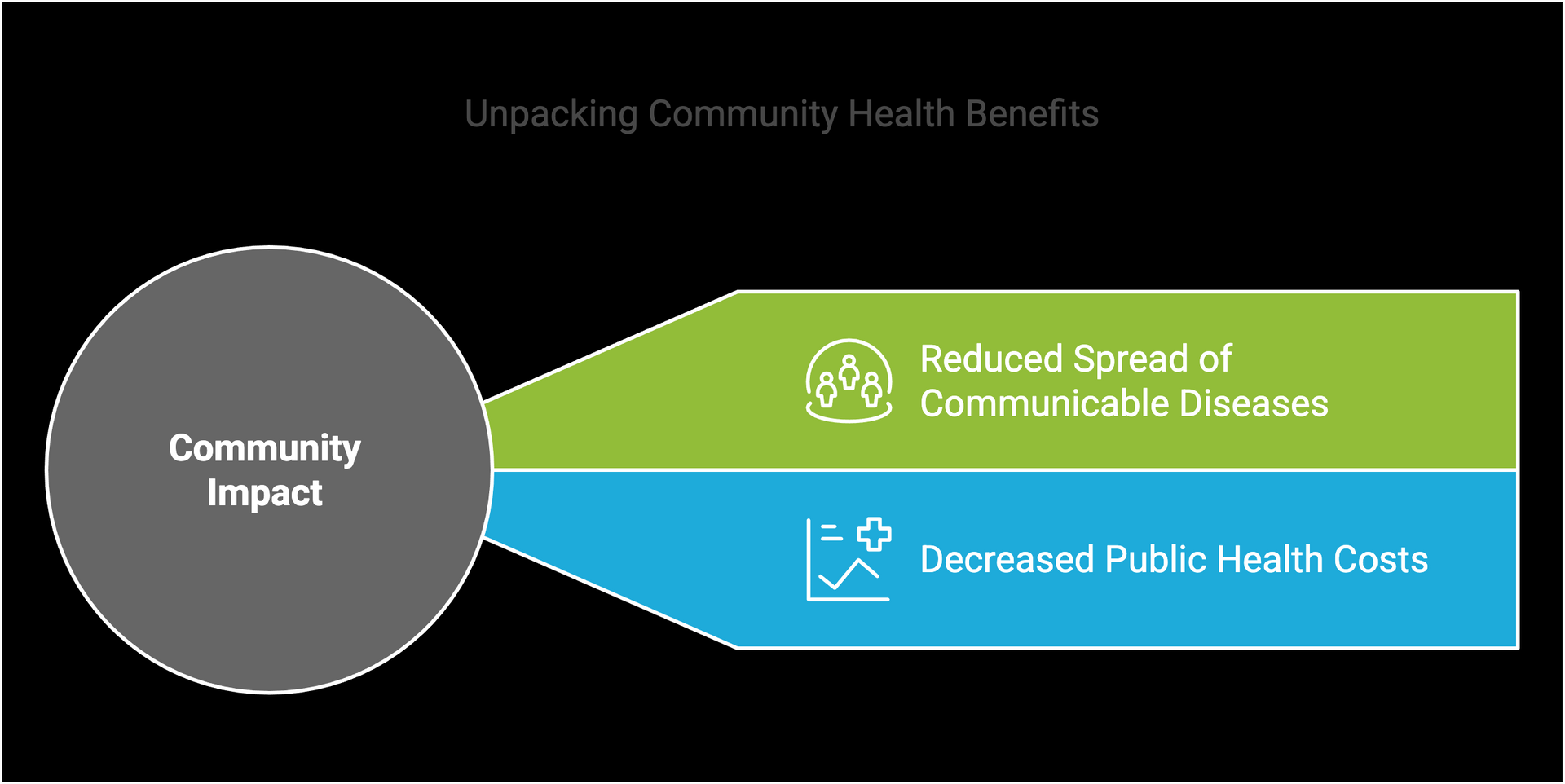
Call to Compassion
"For I was hungry and you gave me food. I was thirsty and you gave me drink. I was a stranger and you welcomed me. I was naked and you clothed me. I was sick and you visited me. I was in prison and you came to me."
Matthew 25:35-36 beautifully expresses our vision at Bible Ministries International as we aim to serve fellow children of God experiencing hardship through pro-bono physical and mental healthcare service coordination. We ask those willing and able to join our advisory council, volunteer time, donate supplies, or offer financial support. We invite you to join us in this crucial effort to bring compassionate, specialized care to those who need it most. Your involvement, whether through financial support, volunteering your time and expertise, or partnering with us, can help transform lives and contribute to a healthier, more compassionate society for all.
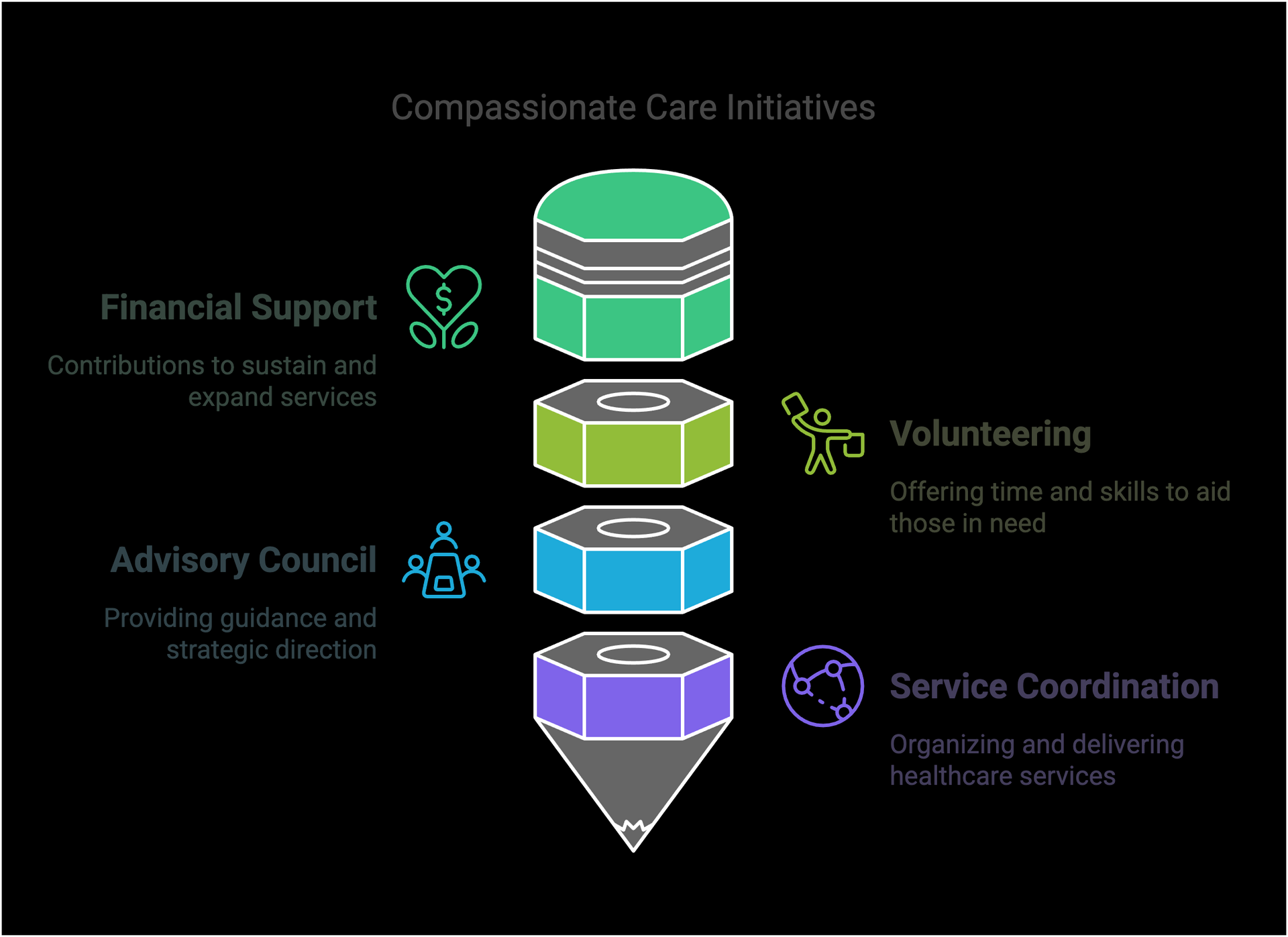
To get involved:
- Healthcare Professionals: Volunteer your specialized skills
- Donors: Support our program financially
- General Volunteers: Assist with patient transportation, administrative tasks, and community education
- Corporate Partners: Sponsor program components or offer employee volunteer opportunities
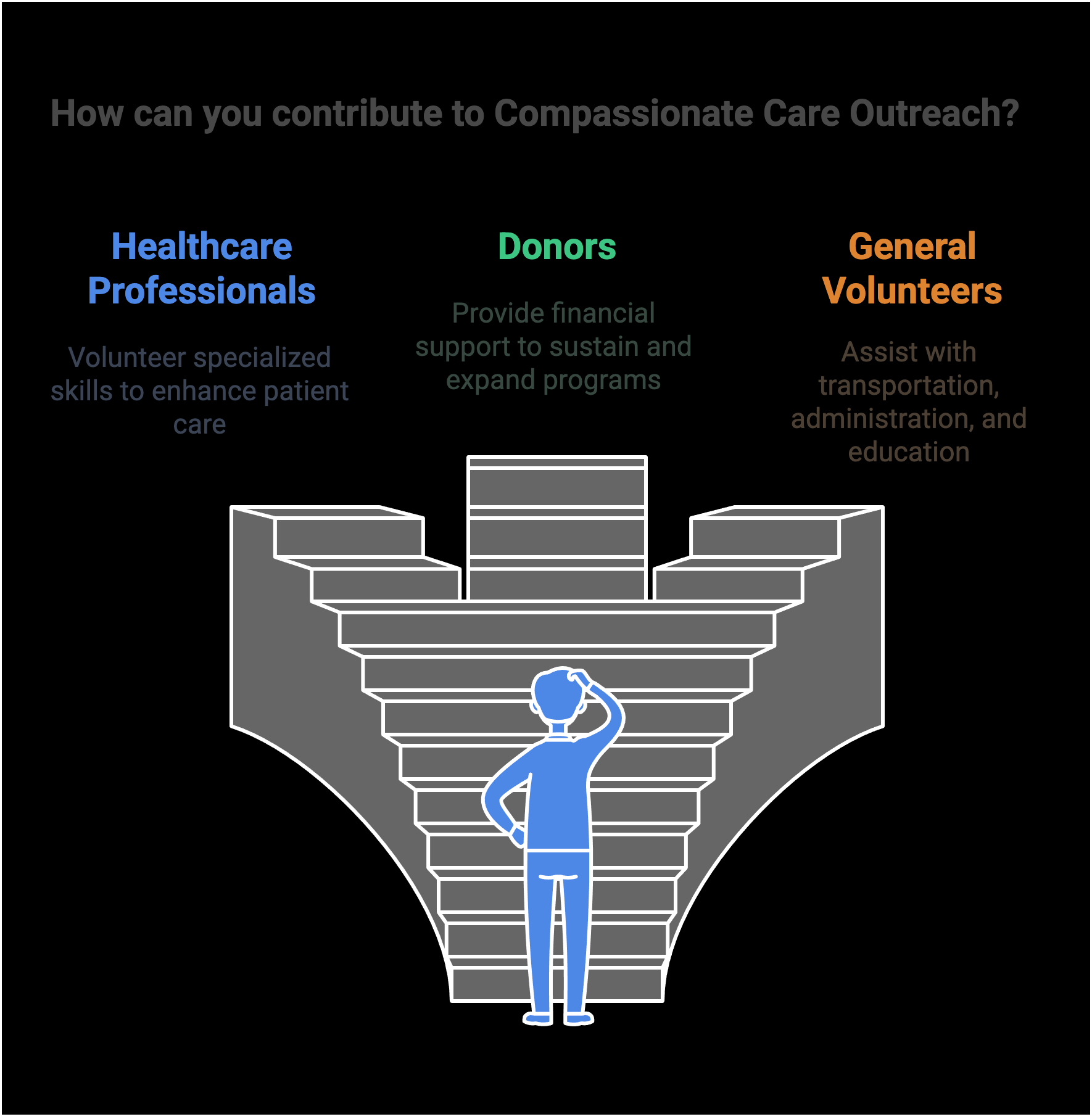
Together, we can bridge the gap in homeless healthcare and work towards a future where every individual, regardless of their housing status, has access to the care they need to live with dignity and hope.
Questions & Answers
What services do you plan to offer through the program?
We intend to recruit doctors, nurses, dentists, therapists, and other volunteers to donate their time to providing medical, mental health, and wellness services to homeless shelter residents transported to their practices.
What geographic areas will you cover?
Initially, we plan to focus on connecting volunteers with shelters in LA and San Diego counties. We hope to expand statewide.
How will you recruit healthcare volunteers?
We will network with medical professional associations, health systems with residency programs, faith-based provider groups, and cold-call private practices to explain the opportunity.
What qualifications must volunteers meet?
Volunteers from all specializations must be licensed in their field though support volunteers also play key roles. Background checks will be required.
Will liability coverage be provided?
Volunteers carry their existing malpractice coverage. Additional liability considerations are being researched as we build out official policies.
Why should busy medical staff volunteer time?
It offers an invaluable perspective on social determinants of health, builds community trust through caring for the underserved, leverages skills to uplift lives, and reduces overreliance on emergency care.
What metrics will you track?
We intend to gather data on health indicators, interventions conducted, referrals, changes in housing status, and other progress markers while protecting patient privacy.
How many shelters will you partner with initially?
In the first year, we hope to identify and coordinate services with 3-5 shelters each in LA and San Diego counties as a pilot.
How will you fund program operations?
As a registered 501(c)3 non-profit, we will fundraise through grants, corporate sponsorships, events, and private donations. All contributions are tax-deductible.
What volunteer onboarding will you provide?
Orientation will cover working with homeless populations, expectations, safety protocols, communication channels, administrative workflow, and HIPAA compliance around recordkeeping.
What advantages does your model offer?
By mobilizing the excess capacity of private practices, we provide sustainable, specialized care based on abilities volunteers already hone daily in their work. This is infinitely scalable.
What expansion plans do you have?
If the pilot achieves target health improvements, we will publish results to attract more volunteer participants across professions to meet the full unmet needs of homeless residents across counties.
Will you offer any care coordination?
Yes, our team will follow up with shelters to support residents in keeping appointments facilitated through our program and provide warm referrals to transitional housing, job programs, or any key services.
What key challenges do you aim to address?
We want to minimize barriers to accessing essential physical care, mental health therapy, substance abuse counseling, dental services, and programs offering paths out of homelessness permanently.
How can the community get involved?
Follow our journey, volunteer across positions, contribute funding towards supplies and transport, share our mission across your personal channels and networks, and advocate for change.
What volunteer positions are available now?
Currently, we seek passionate individuals to assist with nonprofit administration, fundraising, database management, communications, and event planning to prepare launching services.
How has the planning been funded so far?
Our activities have been funded out-of-pocket thus far. We look to our committed, compassionate California community for support. As per the federal tax code, all donations are deductible.
How else can people donate besides money?
We greatly need supplies like hygiene products, non-perishable snacks, new undergarments and socks, bottled water, and reusable transport bags all of which will be distributed.
What inspires this program?
We draw inspiration from Christ ministering to communities most marginalized by society's indifference and aim to walk justly in service to all people.
How can I follow your progress?
Please check back frequently for updates on our website and follow us at @Bibleminint on Facebook, Instagram, and Twitter for real-time updates on achieving this vision.
Who can I contact for media inquiries?
Please direct all media-related questions to: info@bibleministriesinternational.org and our Communications Director will respond promptly regarding the program's progress.
How will effectiveness be demonstrated?
We will transparently share program data regarding patients served, interventions logged, health improvements, and housing placements facilitated while protecting personal information.
What are possible impediments to program launch?
Outside funding for medical liability considerations, transport logistics, and site coordination bandwidth, our desire to uplift neighbors experiencing homelessness fuels perseverance against all odds.
What is the goal of your proposed outreach program?
To facilitate access to pro-bono physical health, mental health, and support services from licensed volunteers for over 60,000 men, women, and children experiencing homelessness across Los Angeles and San Diego counties.
Why start another organization when government agencies already exist?
We bridge care gaps for unhoused who require specialized care that public health systems struggle to meet demand for, through coordinating the excess capacity of private practitioners willing to serve if logistics permit.
How will you recruit enough volunteer professionals?
Extensive outreach begins with medical societies, university health programs, faith-based physician groups, and independent clinics appealing to the values of compassionate care.
What infrastructure must be established first?
Priority mobilization areas span volunteer legal protection, healthcare data tracking systems, county health department coordination, shelter partnership MOUs, and transport logistics.
How does the phase launch plan work?
Phase 1 establishes an advisory council, insurance policies, and pilot programming before Phase 2 scales across more clinics and recruits 200+ volunteers toward Phase 3 goals of county-wide operations.
How is health outcomes data tracked?
HIPAA-compliant reporting allows anonymized data gathering on interventions completed, referrals made, and diagnoses treated without individual identifiers - proving program efficacy.
Where will funding come from early on?
Initial costs for equipment, transport, and staffing require public health sponsorship, foundation grants, and hospital system contributions with the intent of state budget allocations by Year 3 to expand reach.
How can doctors balance volunteering with regular patients?
With cohort shift models avoiding overload on individuals, we create sustainable avenues fitting within existing capacity whether several hours monthly or biweekly. All contributions uplift.
What protective policies are established?
From general liability insurance to individual agreements addressing licensure during care scenarios, legal considerations ensure clinicians feel supported when serving offsite.
What metrics are tracked on interventions?
Categorizing clinic visit purpose, interventions made, referrals completed and follow-up adherence rates allows granular analysis of medical/social demands.
How are HIPAA patient privacy regulations followed?
Electronic medical records allow restricted data access. Shelter communications use anonymized IDs with minimized sharing of medical details, only on a need-to-know basis.
What motivated this program's creation?
Scriptural teachings to compassionately care for marginalized groups paired with recognizing glaring healthcare access inequalities facing California's homeless.
How can the public get involved?
From advisory council roles to volunteering to donating supplies, join our mailing list to follow key milestones. Grassroots support fuels this calling to serve those already underserved by existing systems.
What partnerships need to form?
Collaboration across healthcare associations, government agencies, homeless advocacy groups, and funding consortiums ensures effective resource deployment toward gaps failing people each night.
How does this program uplift recipients?
Connecting those without alternatives to doctors, counselors, and critical referrals provides the first steps toward stabilization, recovery, and transitioning off the streets if possible.
How are patients referred to the program?
Partnerships with shelters streamline referral processes from case workers closely tracking resident needs unable to source alternatives to inconvenient public options.
Is this model financially self-sustaining?
Early philanthropic funding gives way to data-proven programs eliciting state and federal reimbursements applying managed care principles to cover base operational costs by maturity.
How can I follow your launch progress?
Please subscribe to email updates highlighting critical milestones achieved, volunteer opportunities, and pilot clinic recaps as we bring this vision for compassionate healthcare access to life!
How else can community members give back?
Follow our Facebook page for supply drive donation needs, volunteer postings, clinic coverage opportunities, or additional ways grassroots support propels this health access movement.
Genesis | Names of individuals and groups |
Adam
Eve
Cain
Abel
Seth
Noah
Abraham
Sarah
Isaac
Rebekah
Jacob
Esau
Joseph
Judah
Benjamin
Lot
Ishmael
Leah
Rachel
Reuben
Simeon
Levi
Judah
Issachar
Zebulun
Dan
Naphtali
Gad
Asher
Zilpah
Bilhah
Dinah
Er
Onan
Shelah
Pharez
Zerah
Hezron
Hamul
Tola
Phuvah
Job
Shimron
Sered
Elon
Jahleel
Hushim
Jemuel
Jamin
Ohad
Jachin
Zohar
Shaul
Gershon
Kohath
Merari
Belah
Becher
Ashbel
Gera
Naaman
Ehi
Rosh
Muppim
Huppim
Ard
Hagar
Ishmael
Manasseh
Ephraim
Asenath
Potipherah
Beeri
Anah
Zibeon
Adah
Reuel
Jeush
Jalam
Korah
Hanoch
Abida
Eldaah
Shuni
Ezbon
Eri
Arodi
Areli
Jimnah
Ishuah
Isui
Beriah
Serah
Heber
Malchiel
Bilhan
Zaavan
Akan
Dishon
Ezer
Dishan
Uz
Aran
Sheba
Dedan
Asshurim
Letushim
Leummim
Jabal
Jubal
Tubalcain
Naamah
Mahalaleel
Methusael
Jared
Hanoch
Bedad
Hadad
Samlah
Saul
Baalhanan
Hadar
Pau
Adah
Bashemath
Anah
Abimelech
Phichol
Ephron
Atad
Jochebed
Aaron
Miriam
Hur
Uzziel
Mishael
Elzaphan
Sithri
Jemuel
Jamin
Ohad
Jakin
Zohar
Saul
Baara
Hazael
Bedad
Hadad
Masrekah
Shomer
Hotham
Timna
Amalek
Eliphaz
Reuel
Jeush
Jalam
Korah
Magdiel
Irma
Hivites
Arkites
Sinites
Arvadites
Zemarites
Hamathite
Admah
Zeboiim
Zoar
Pharaoh
Potiphar


















